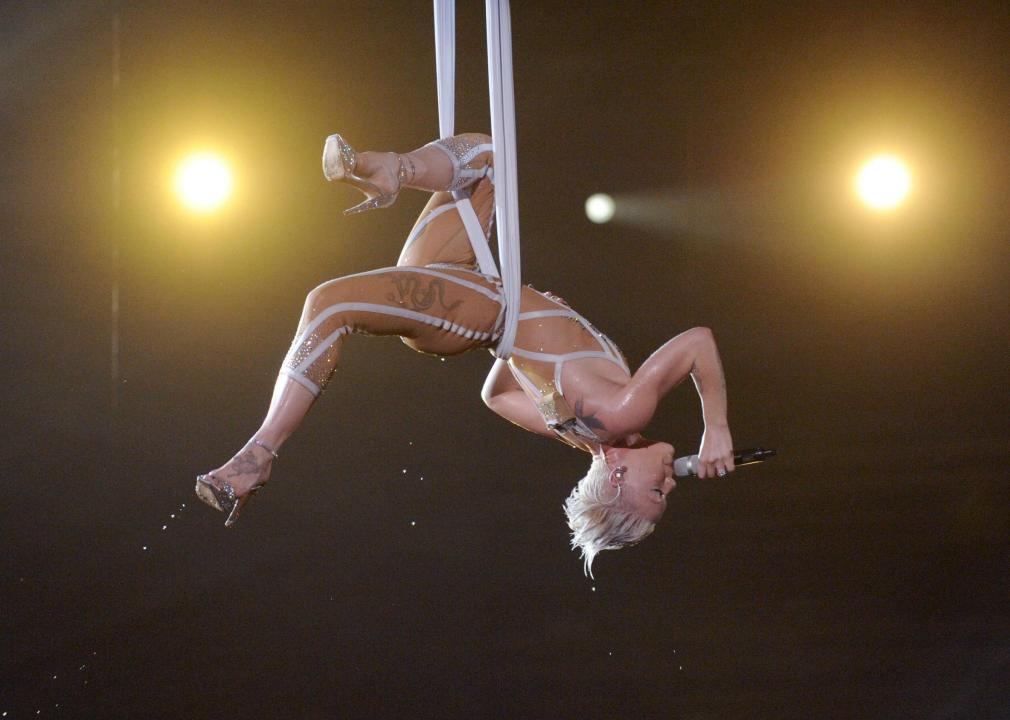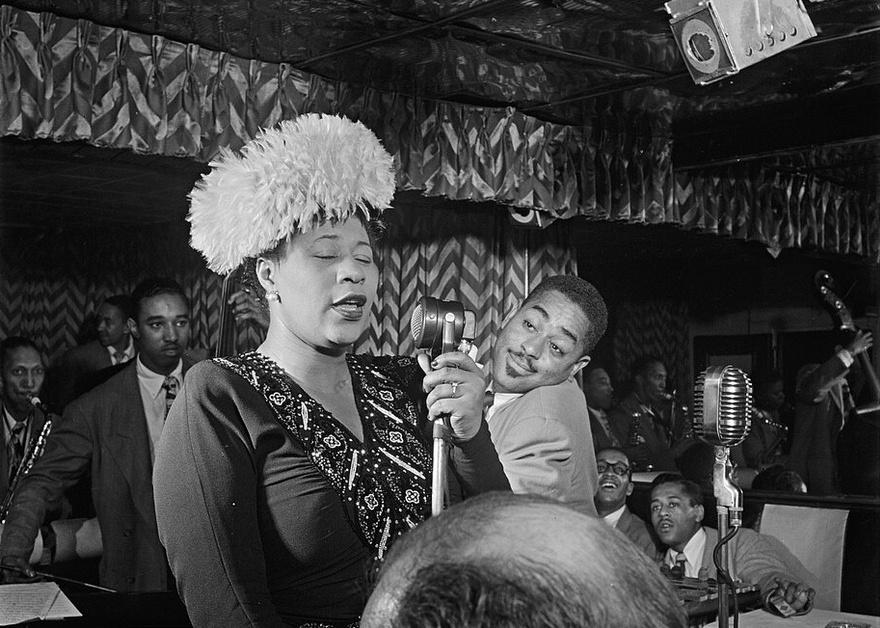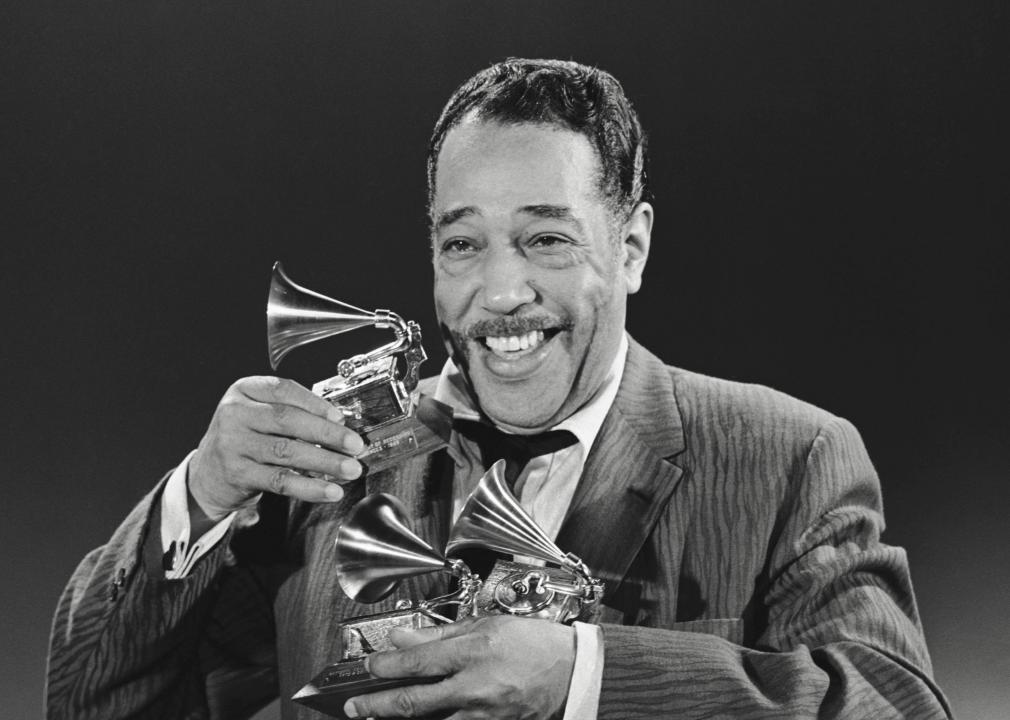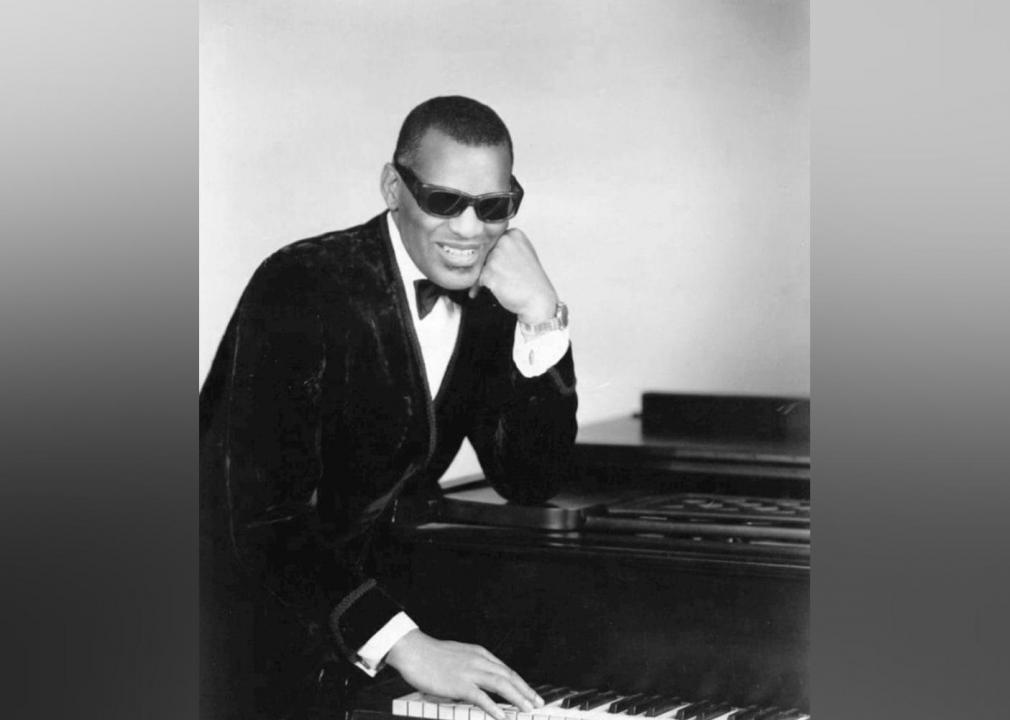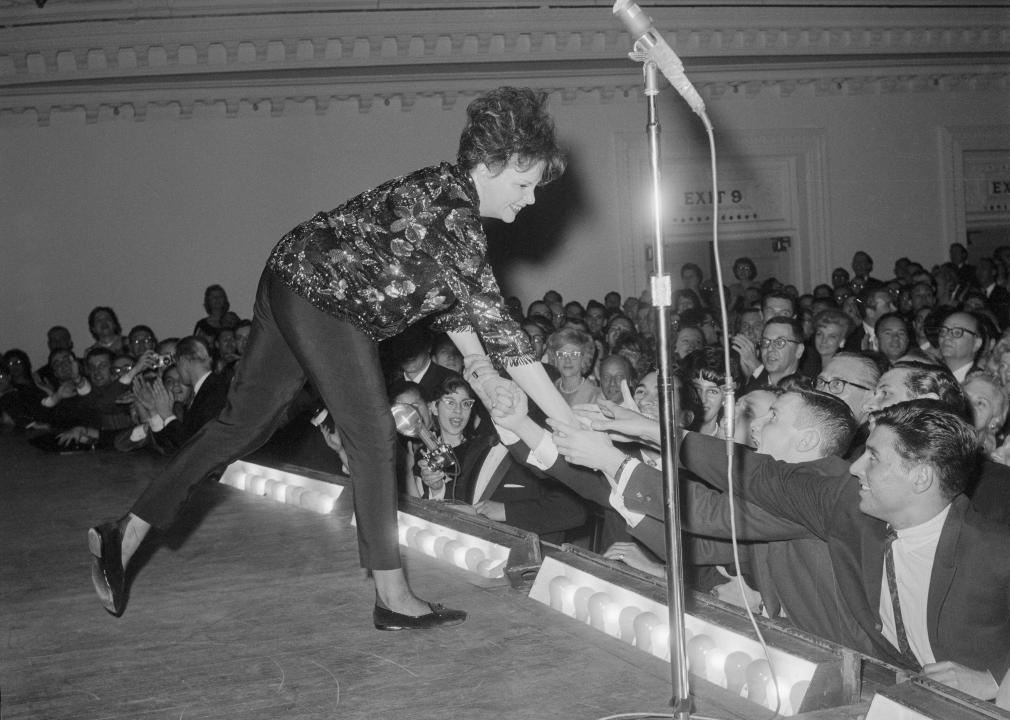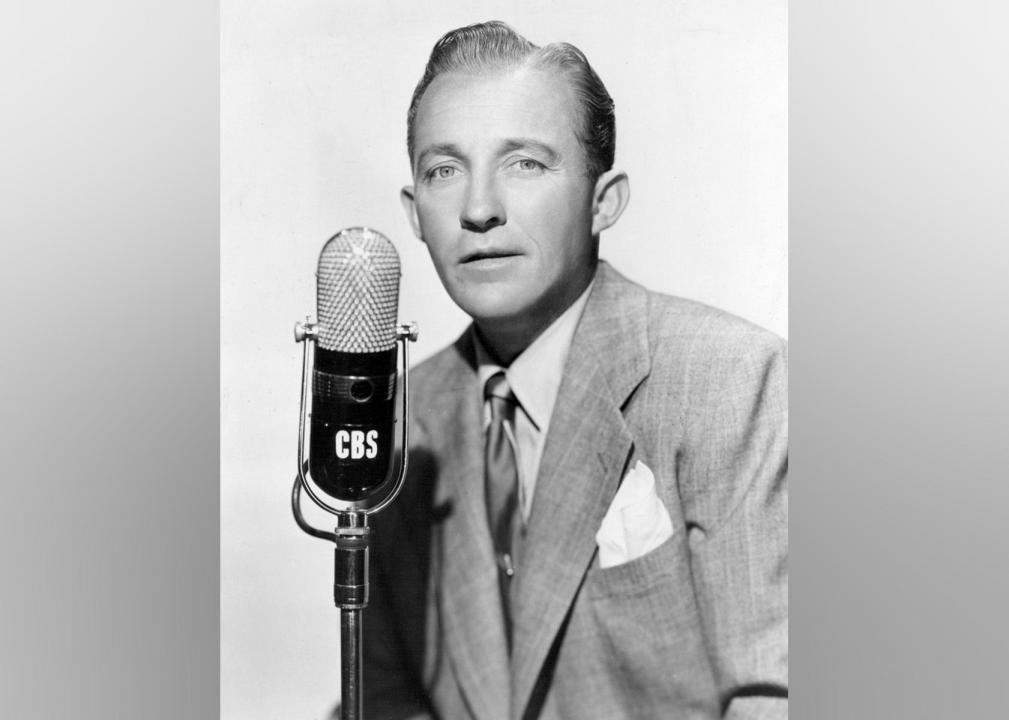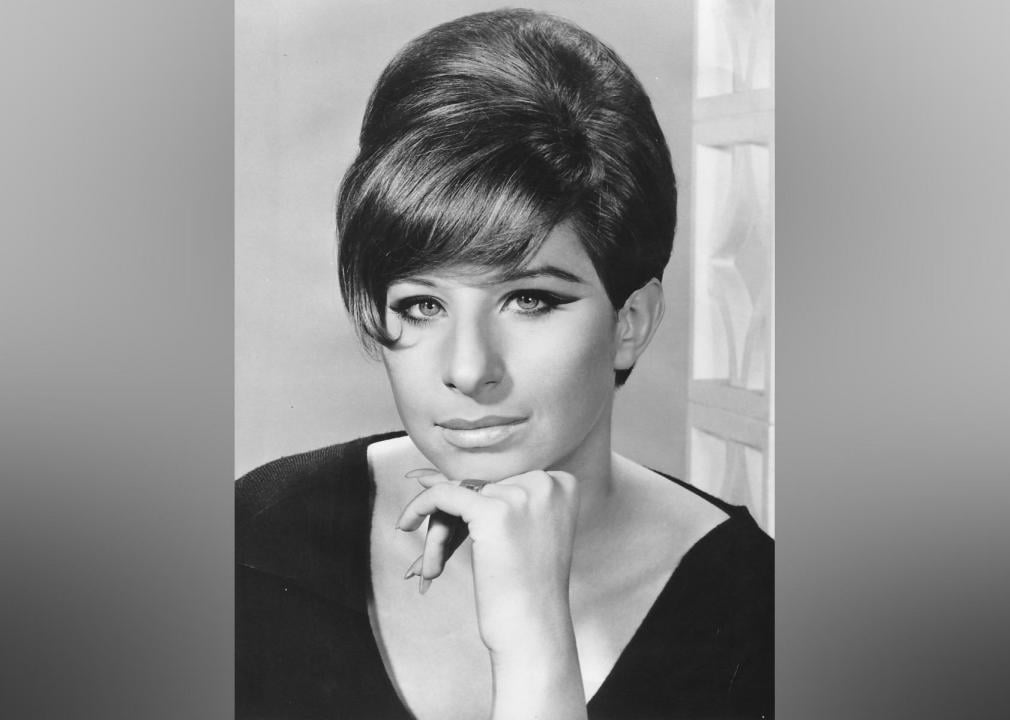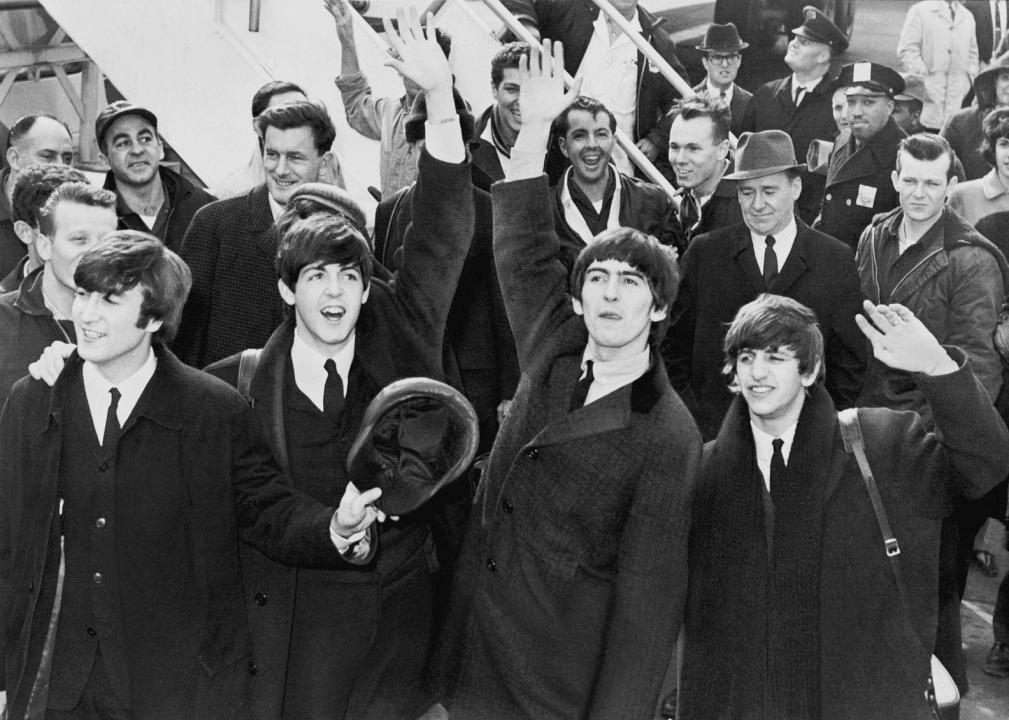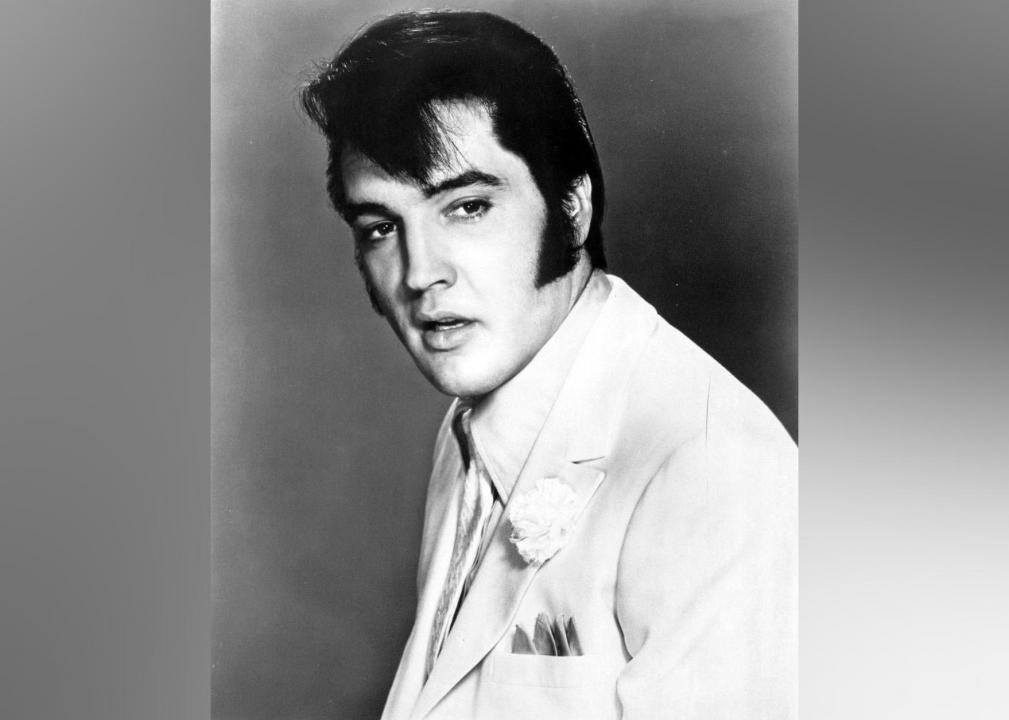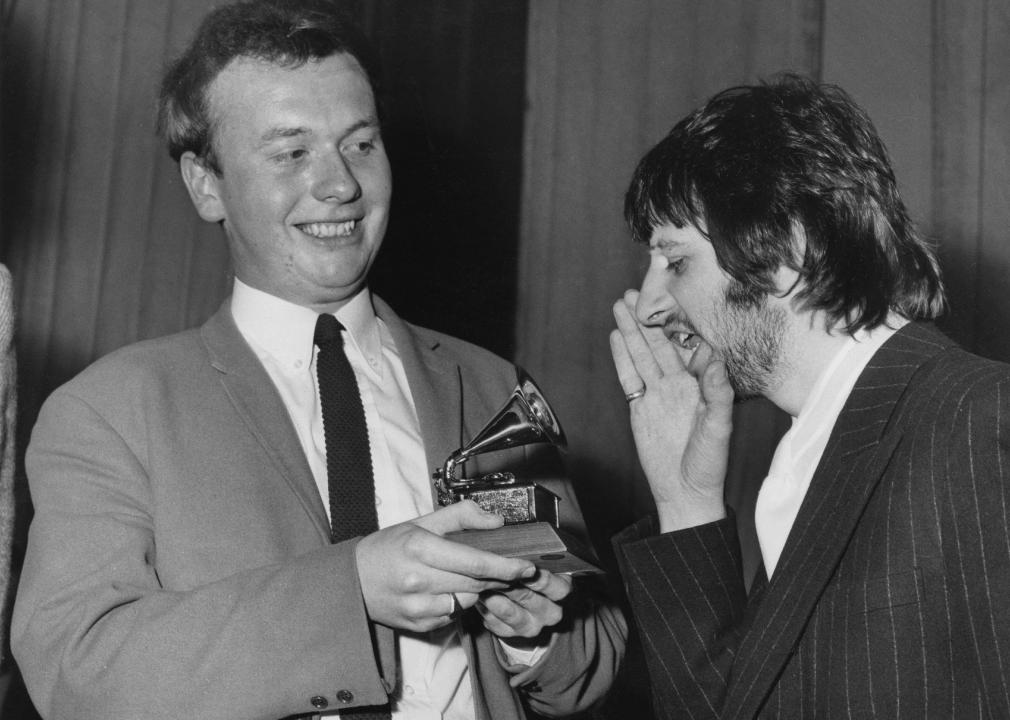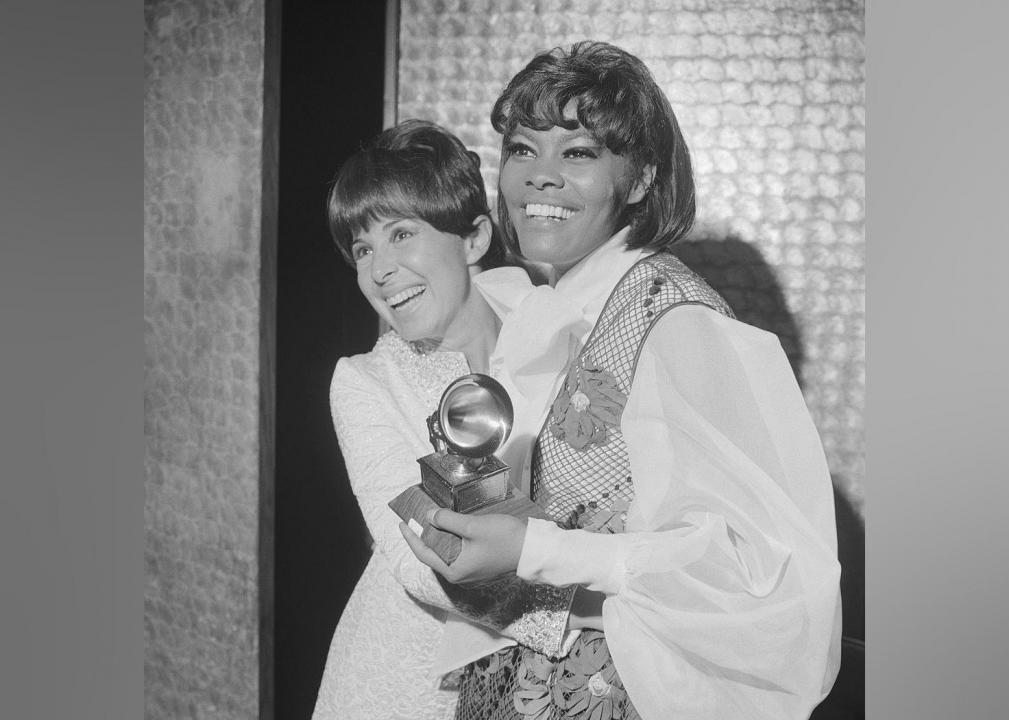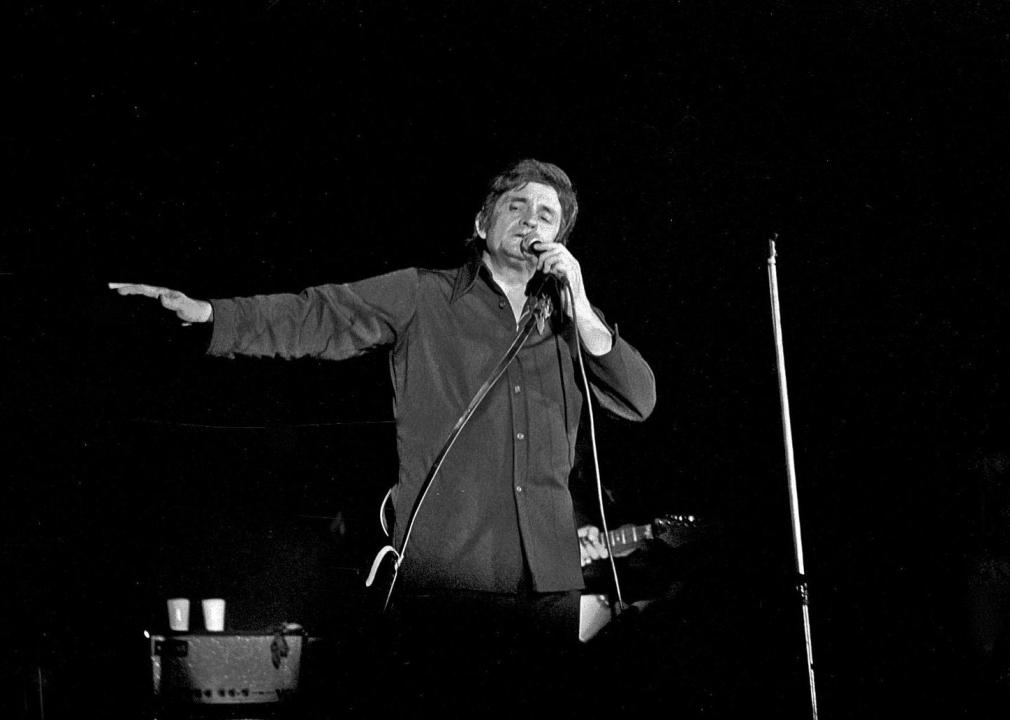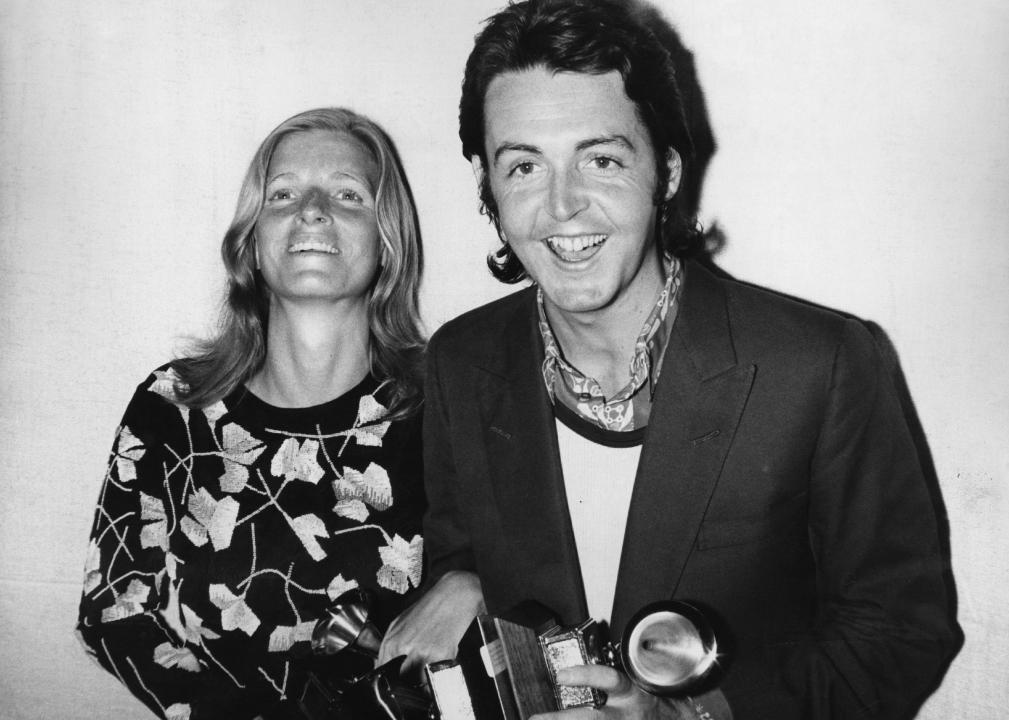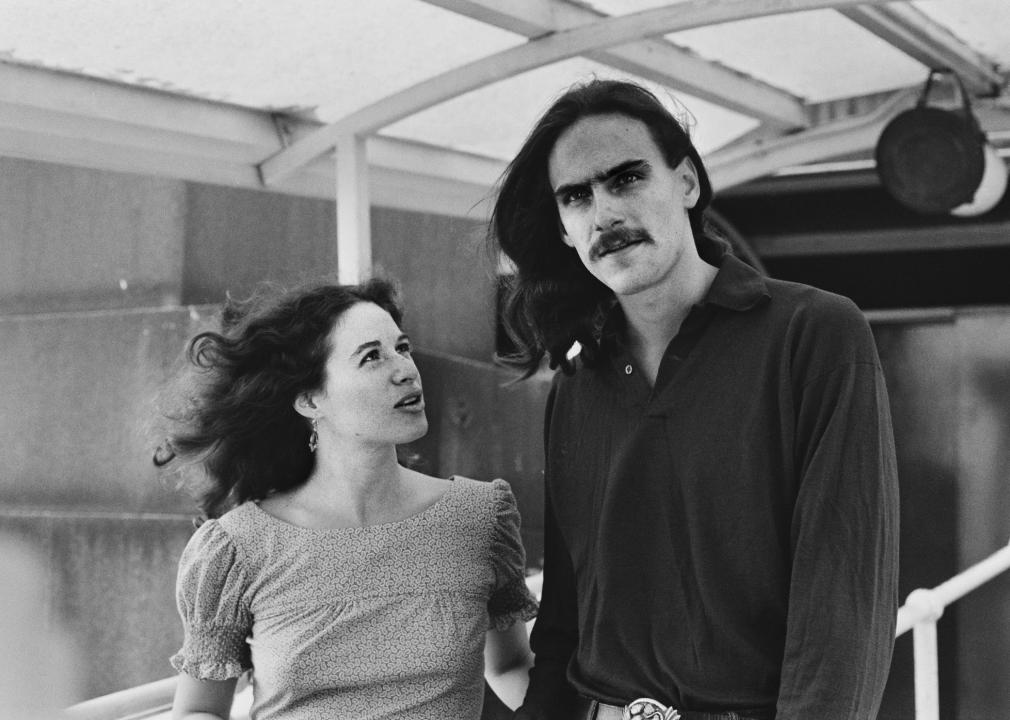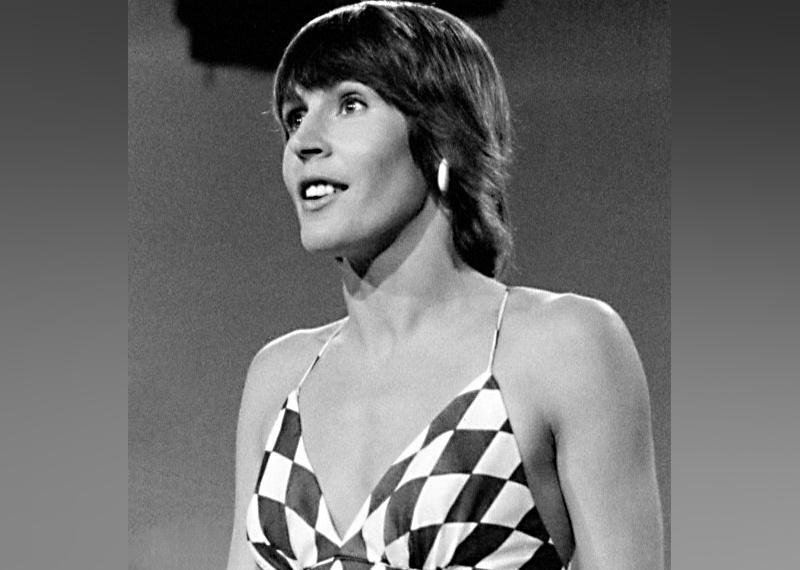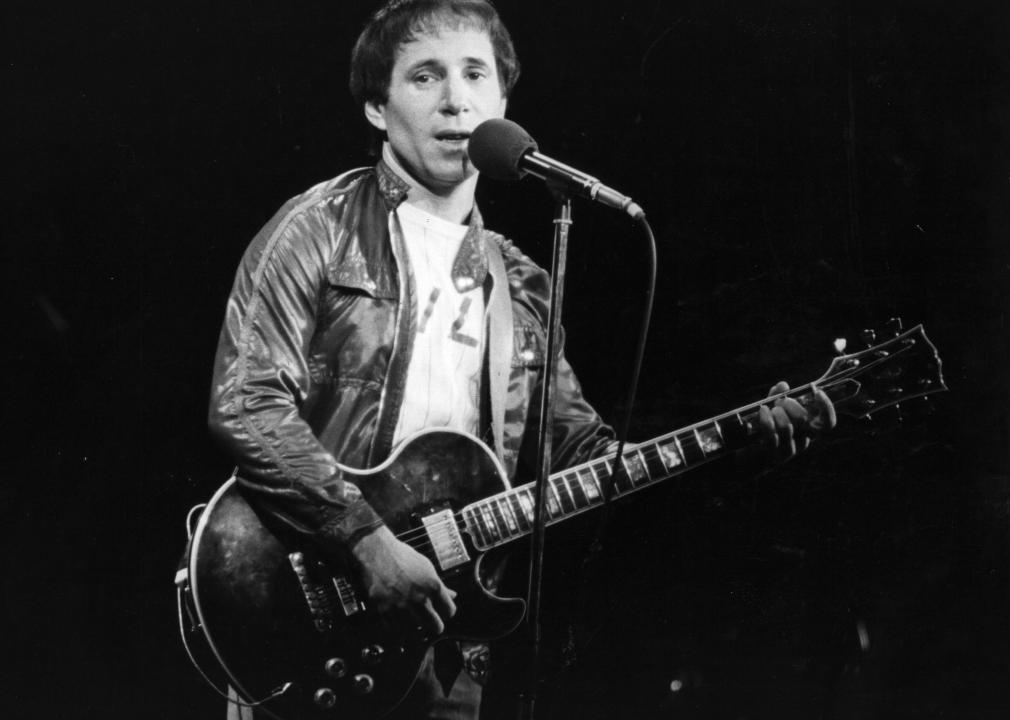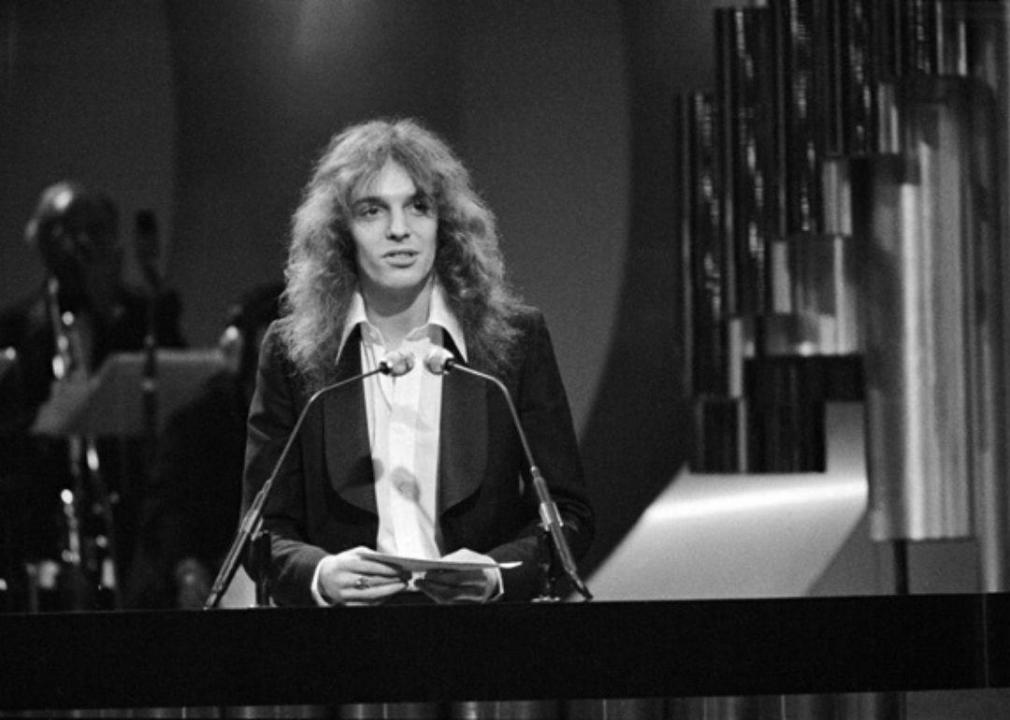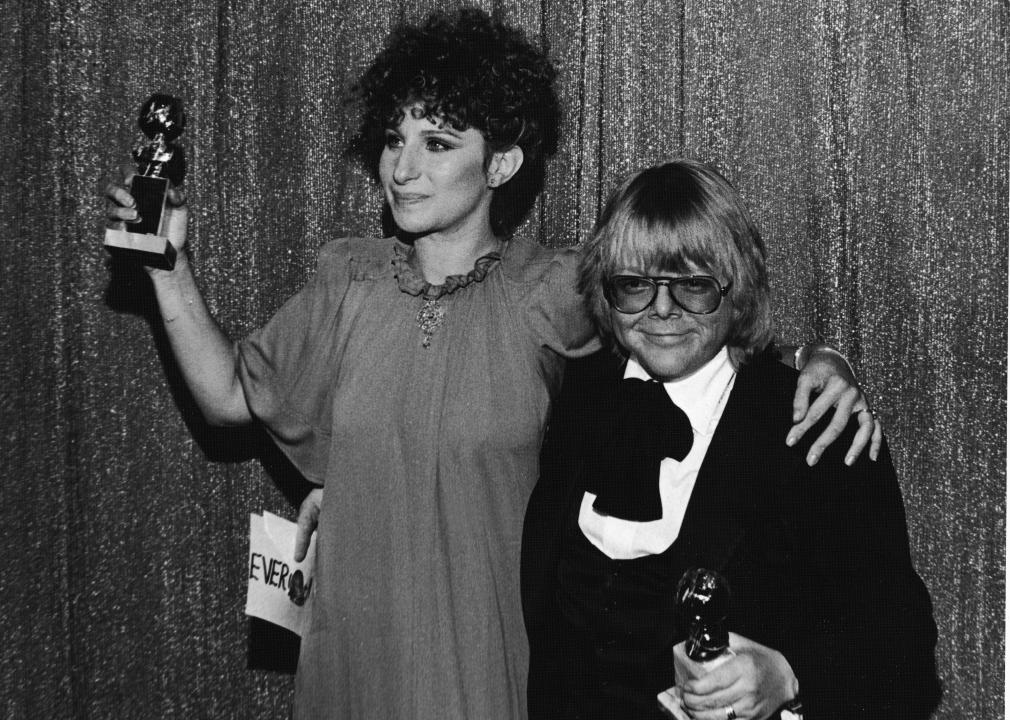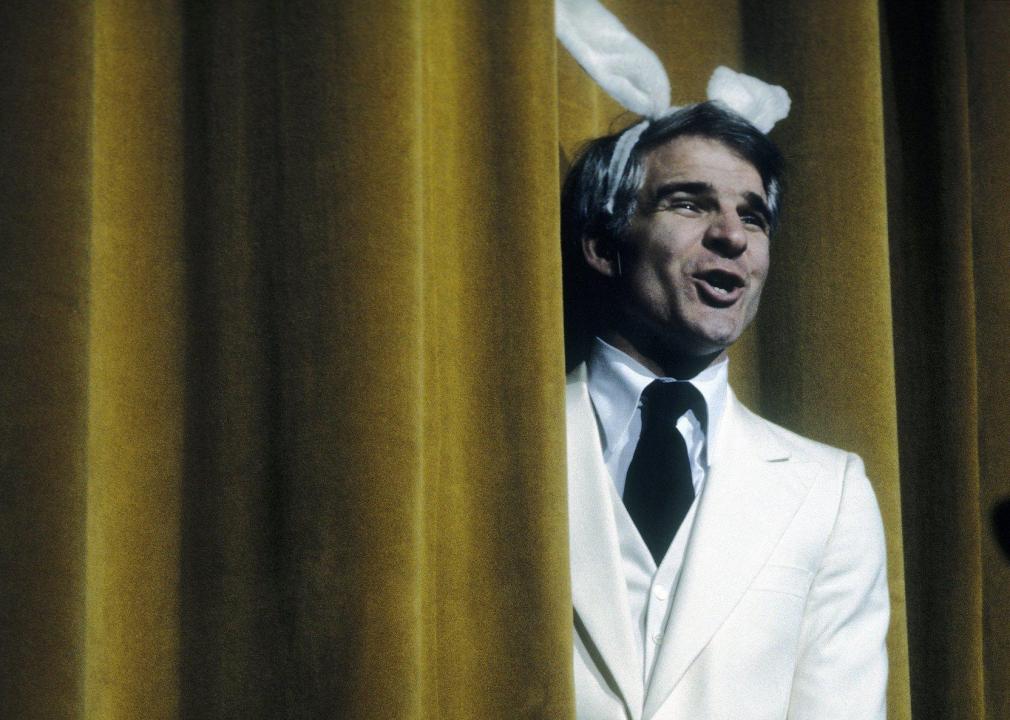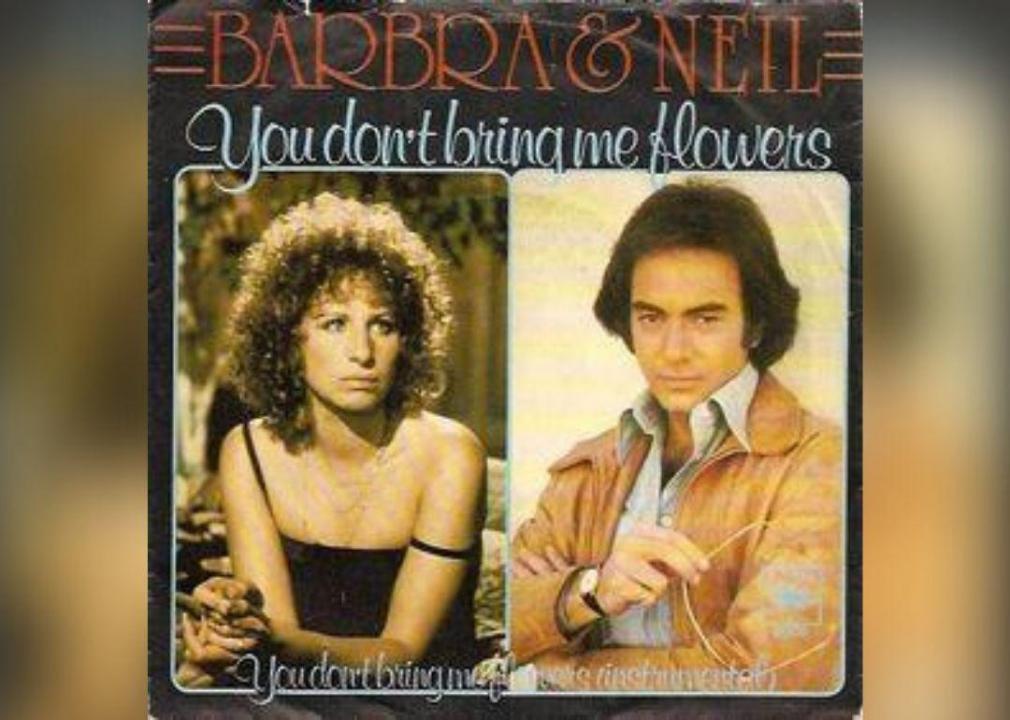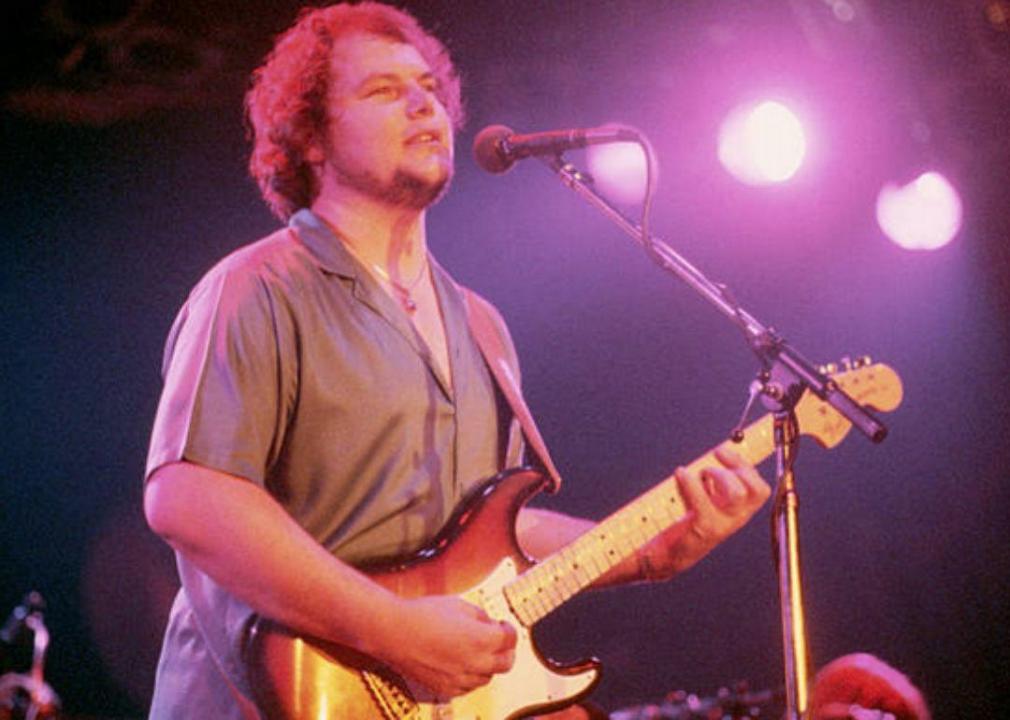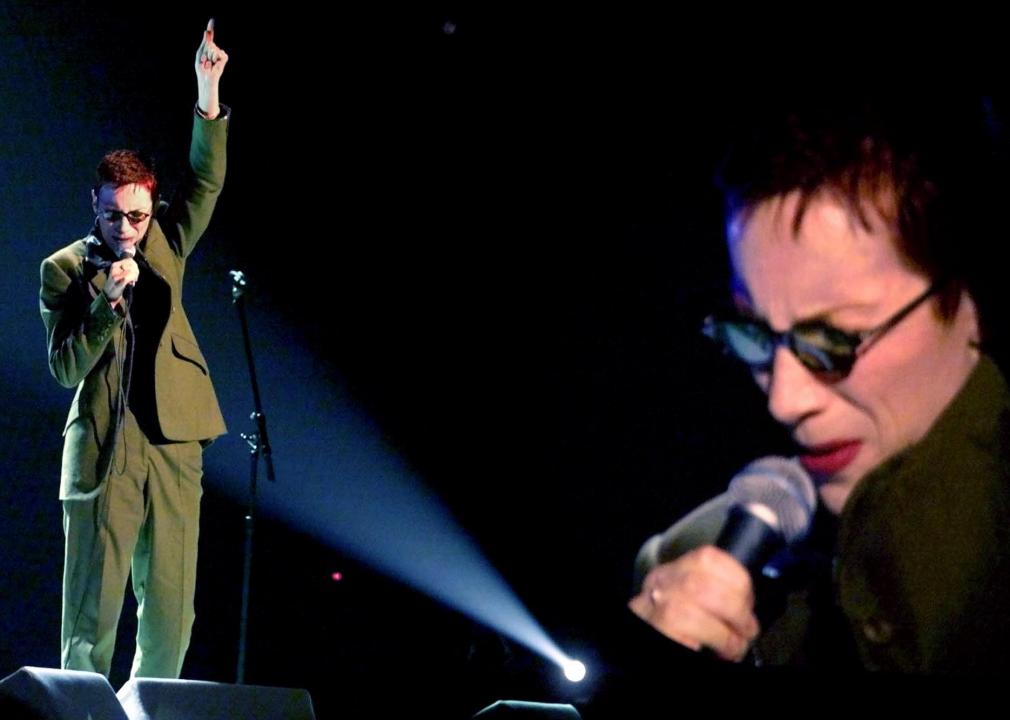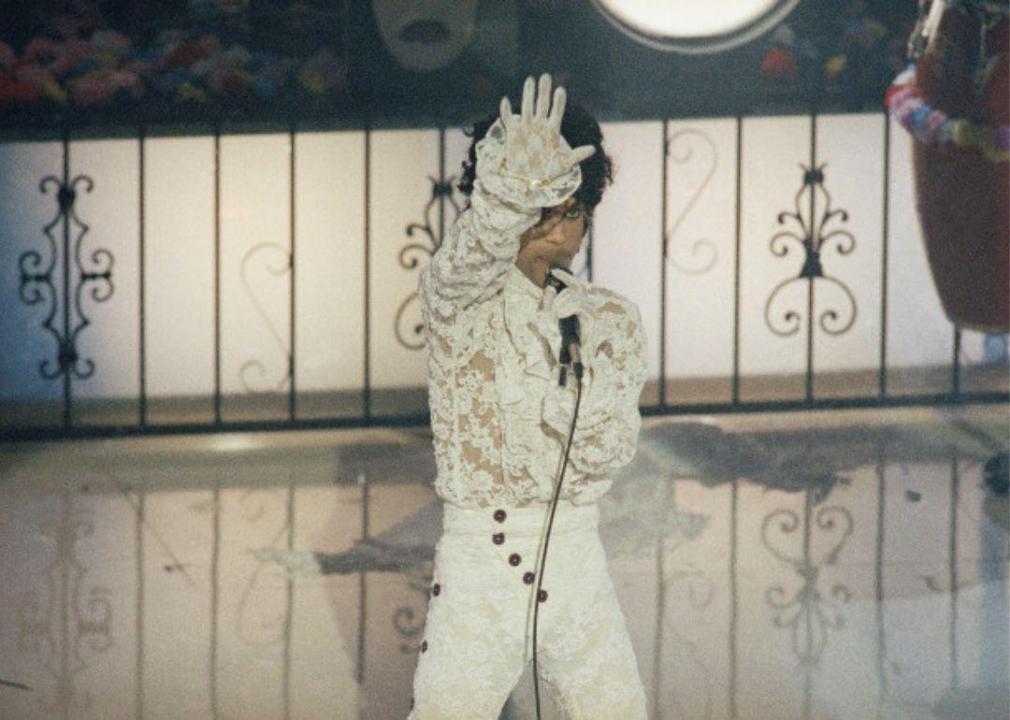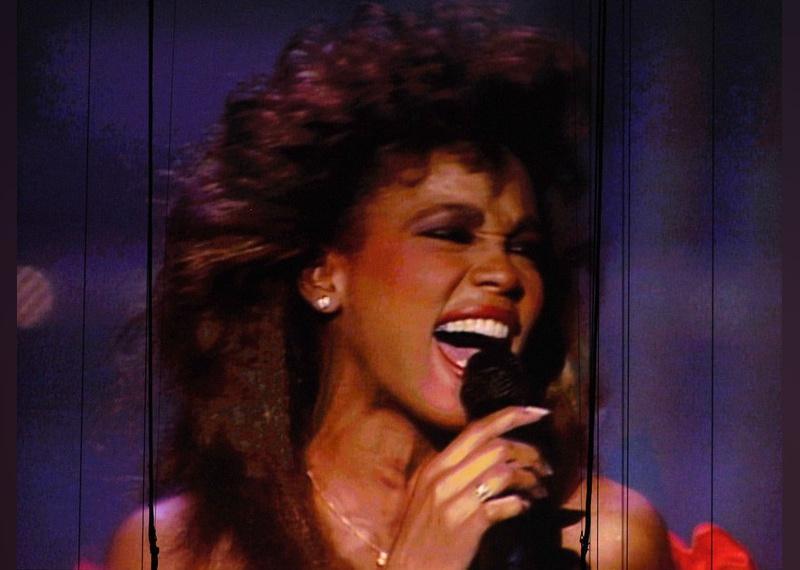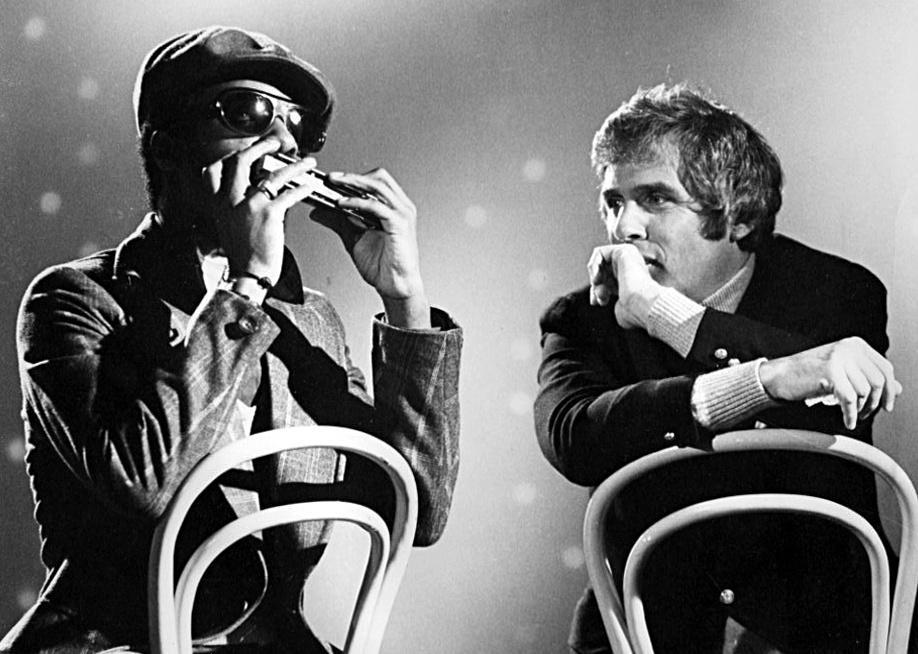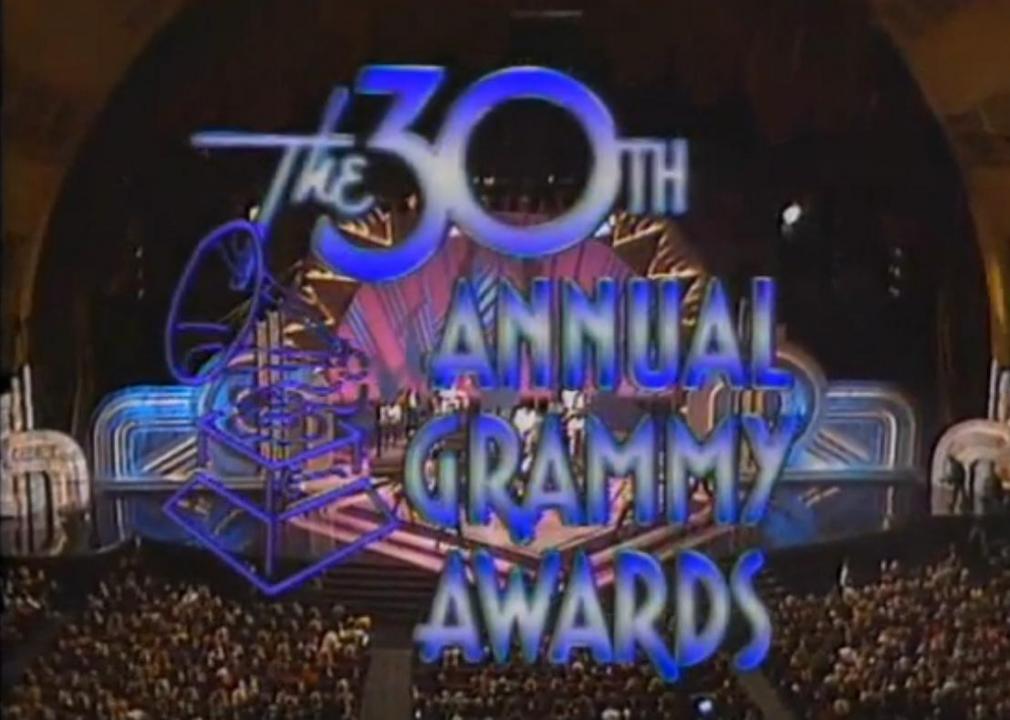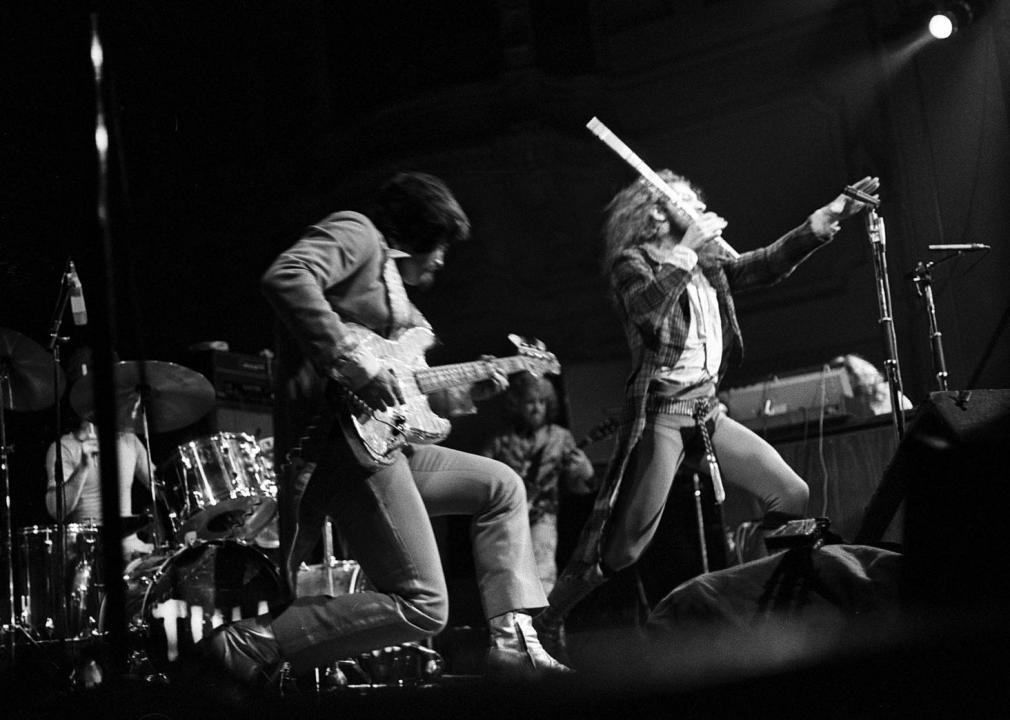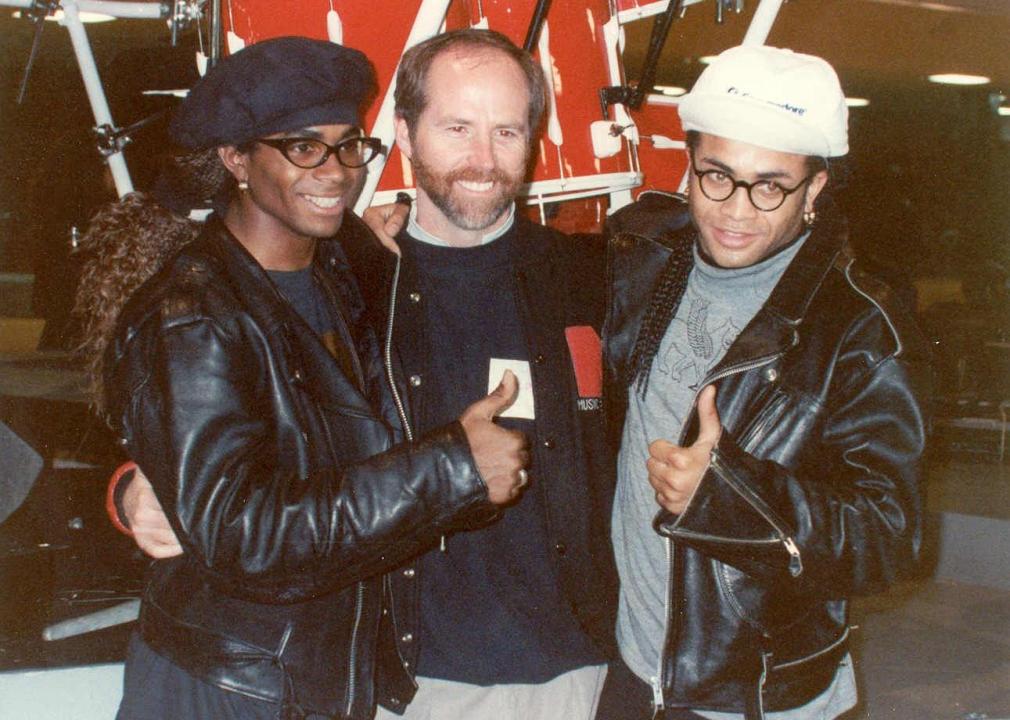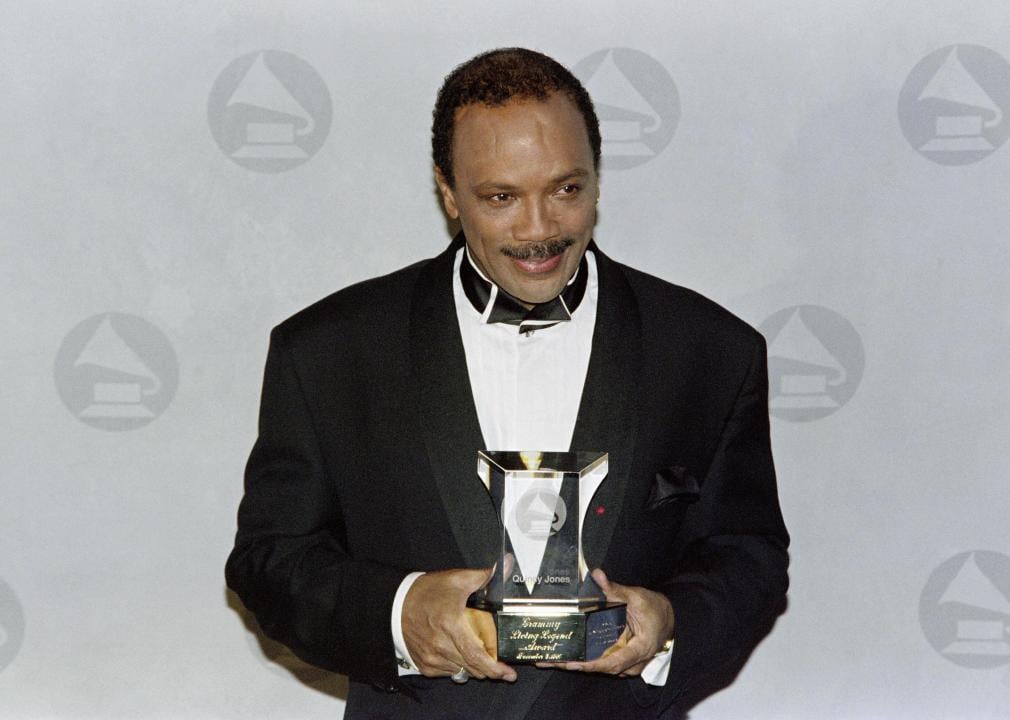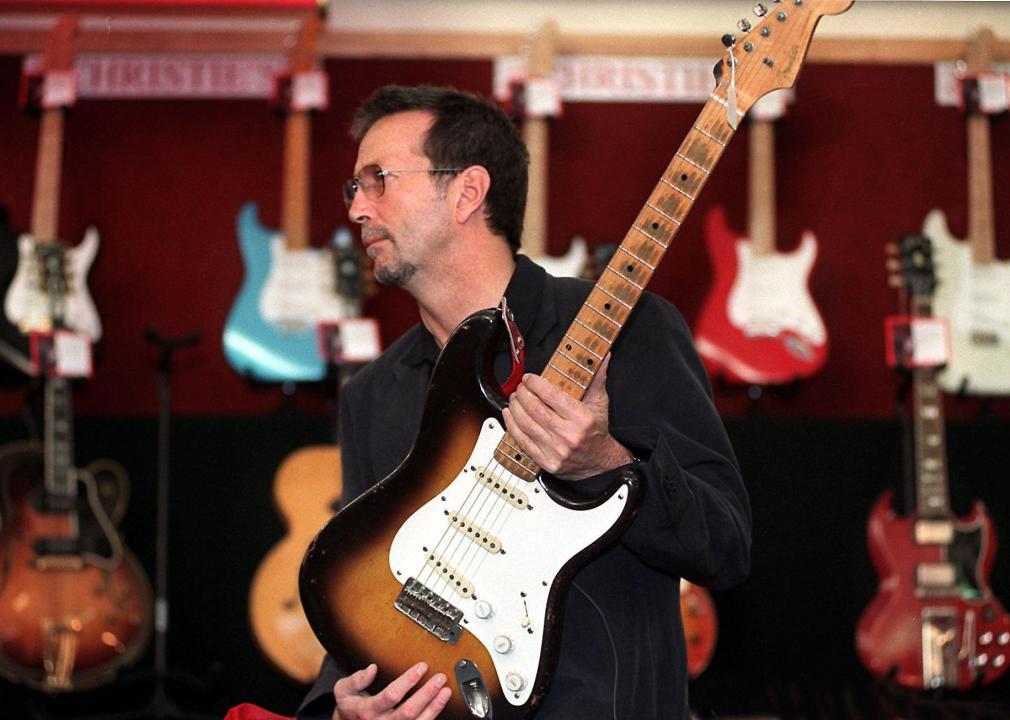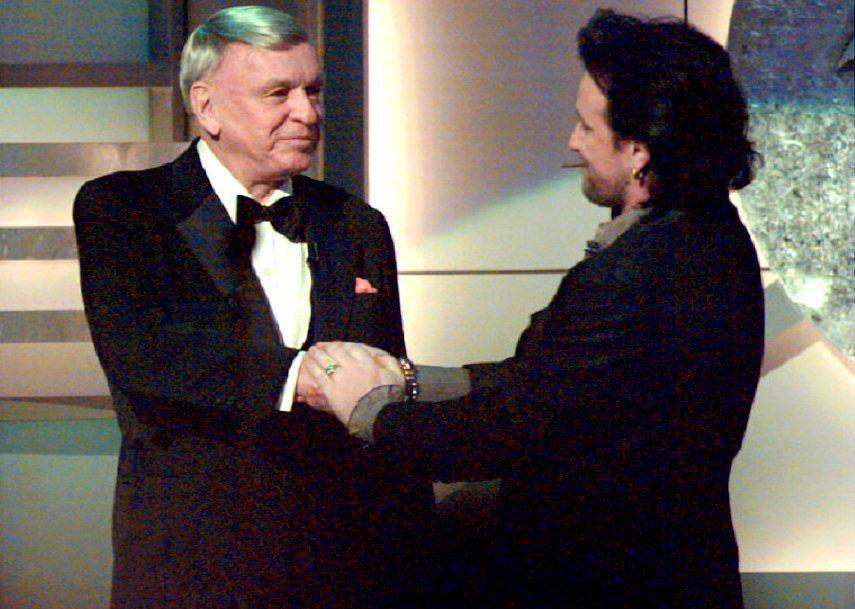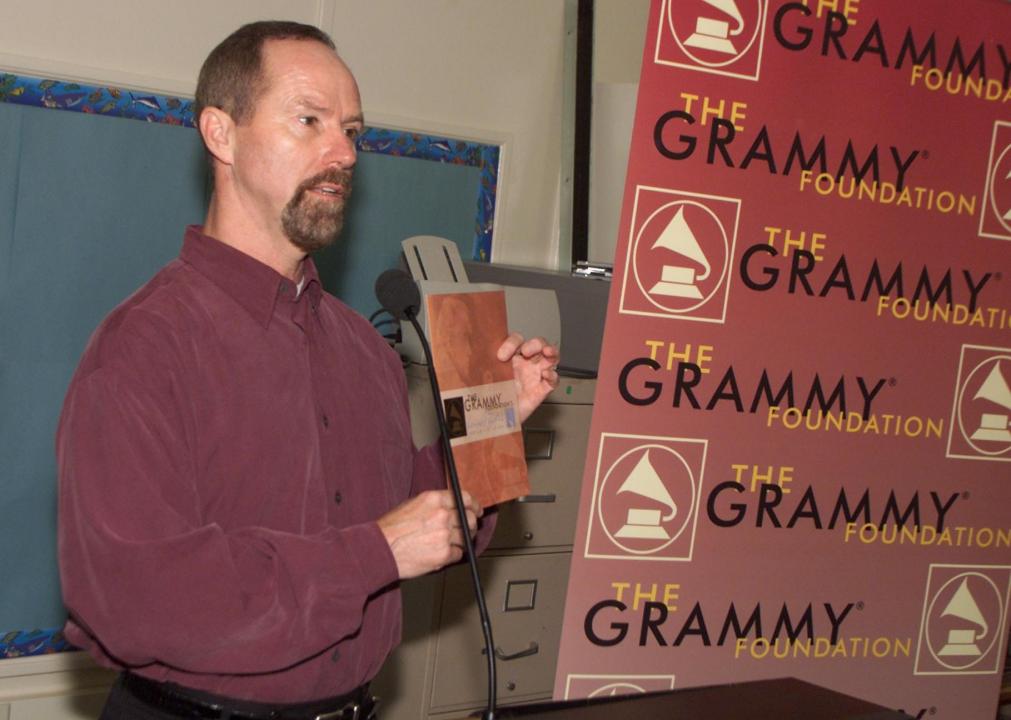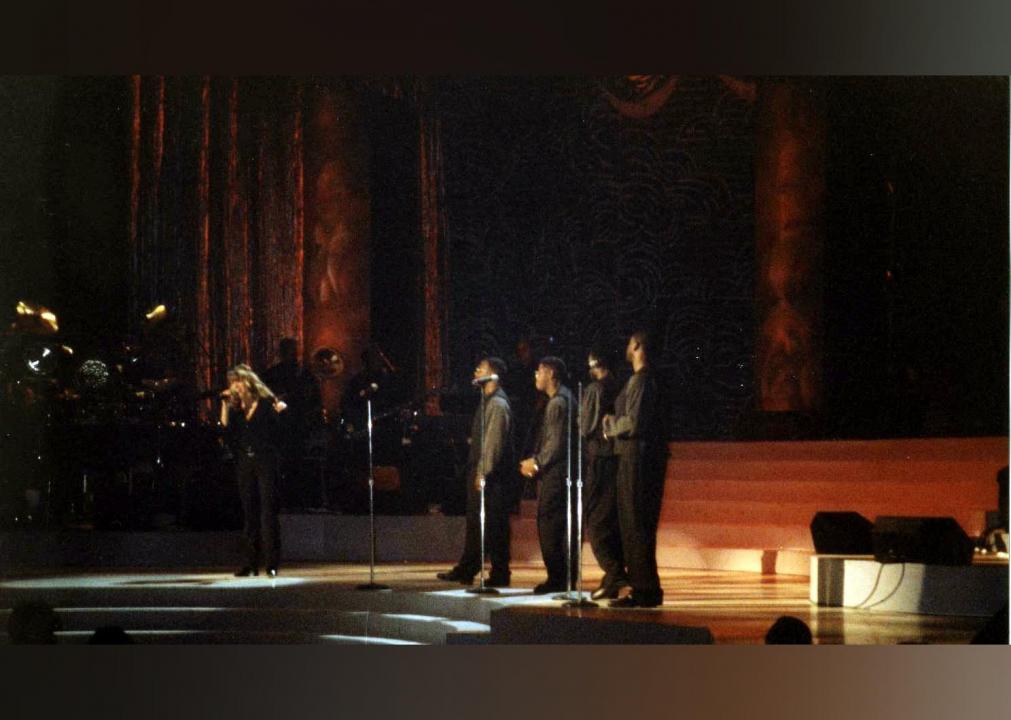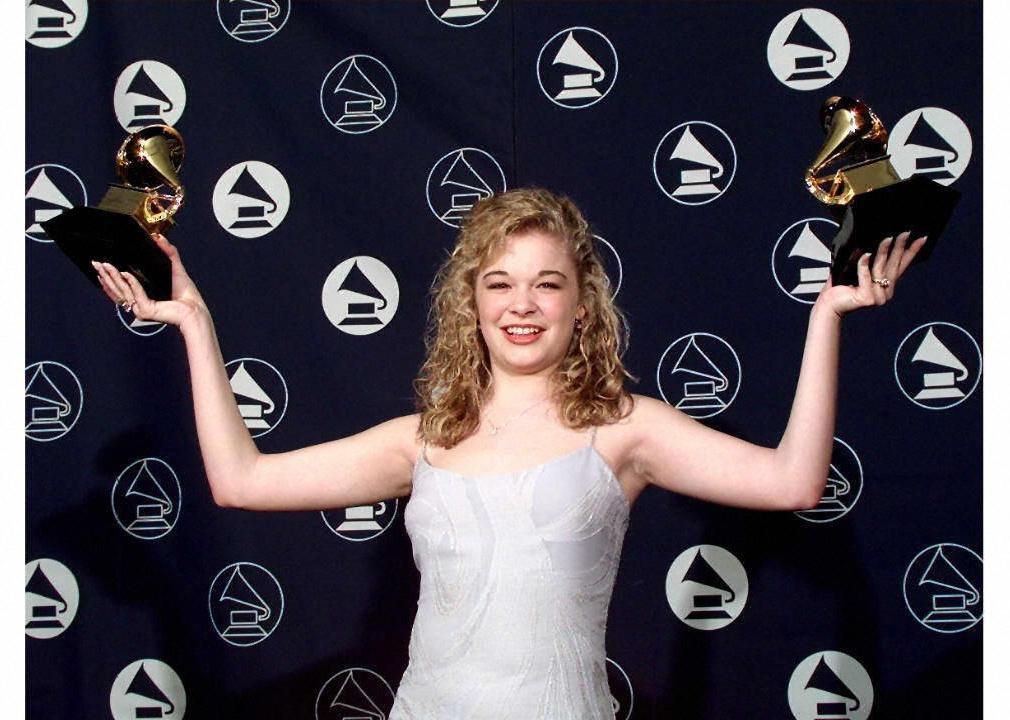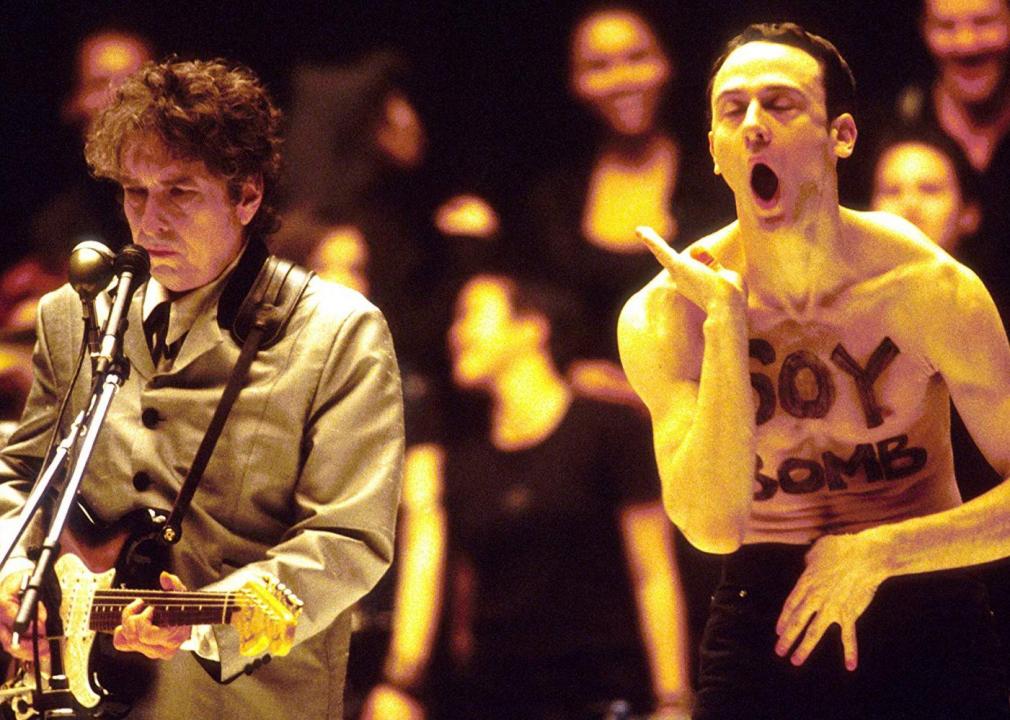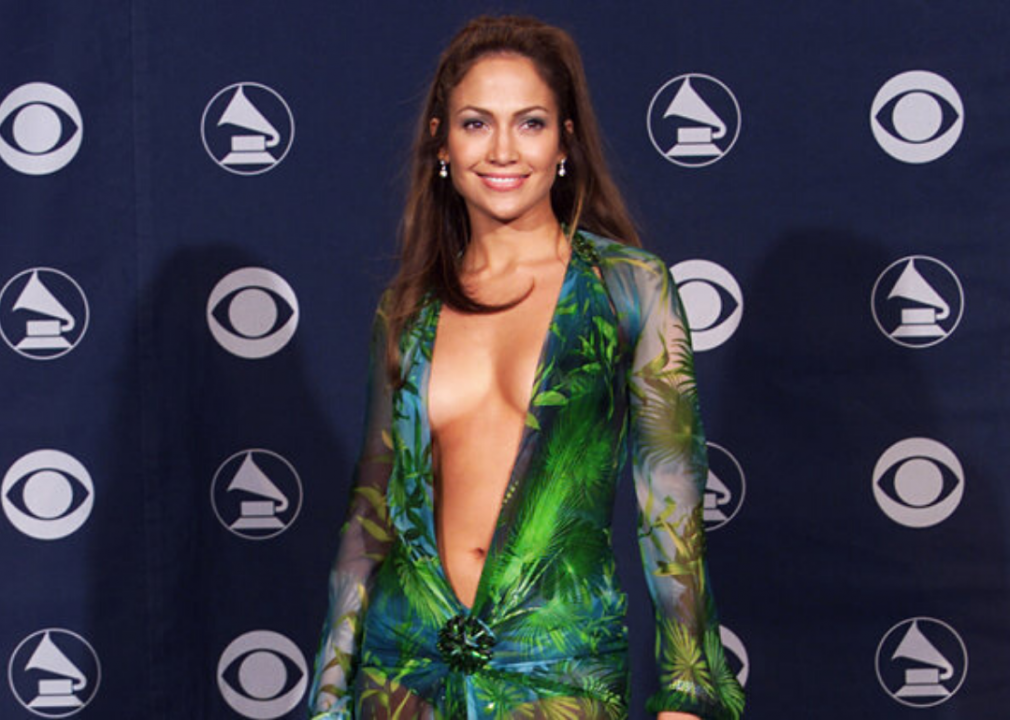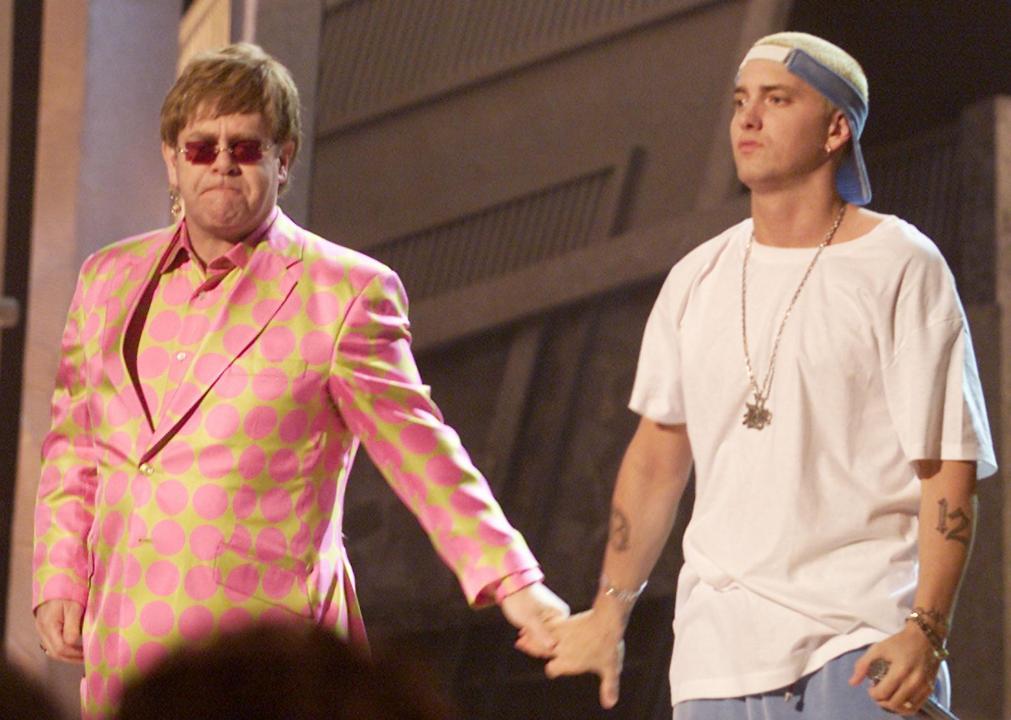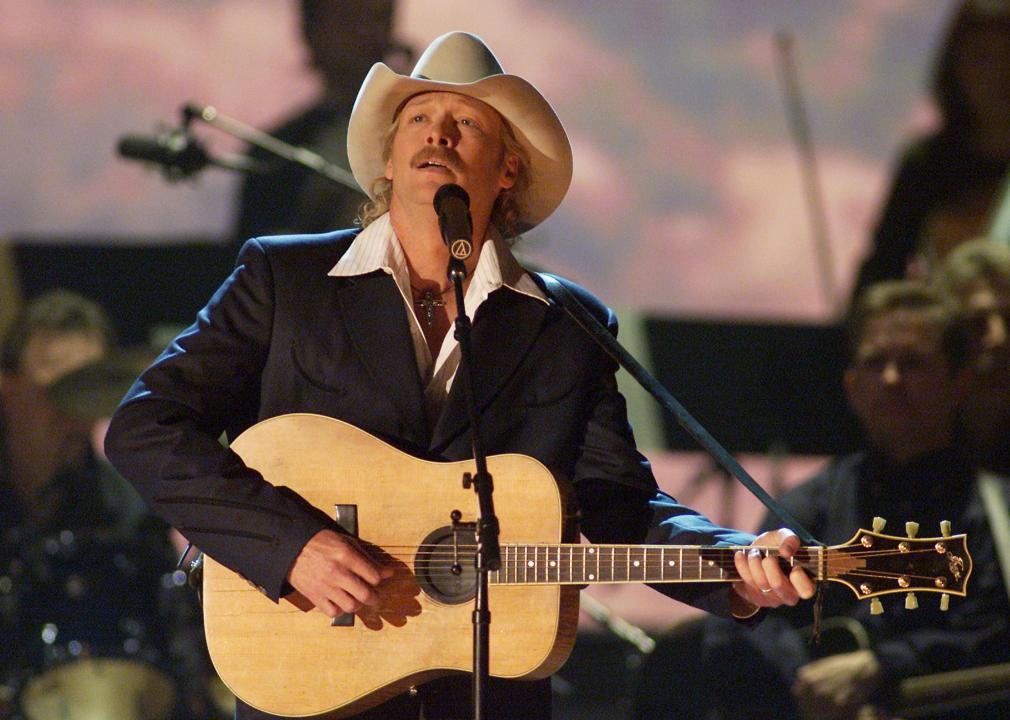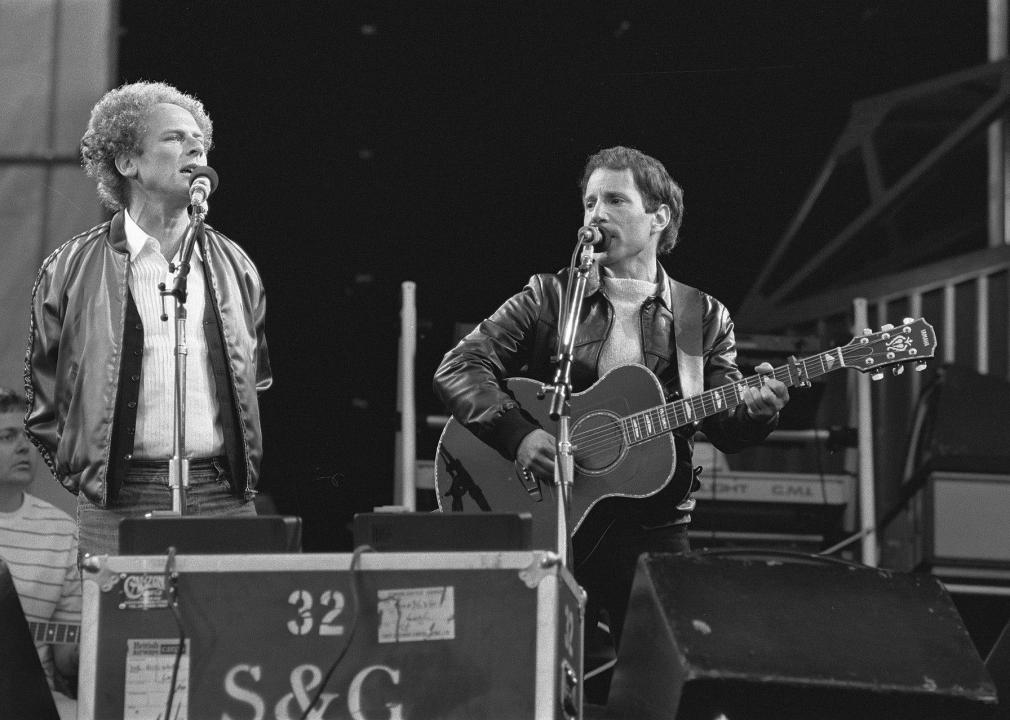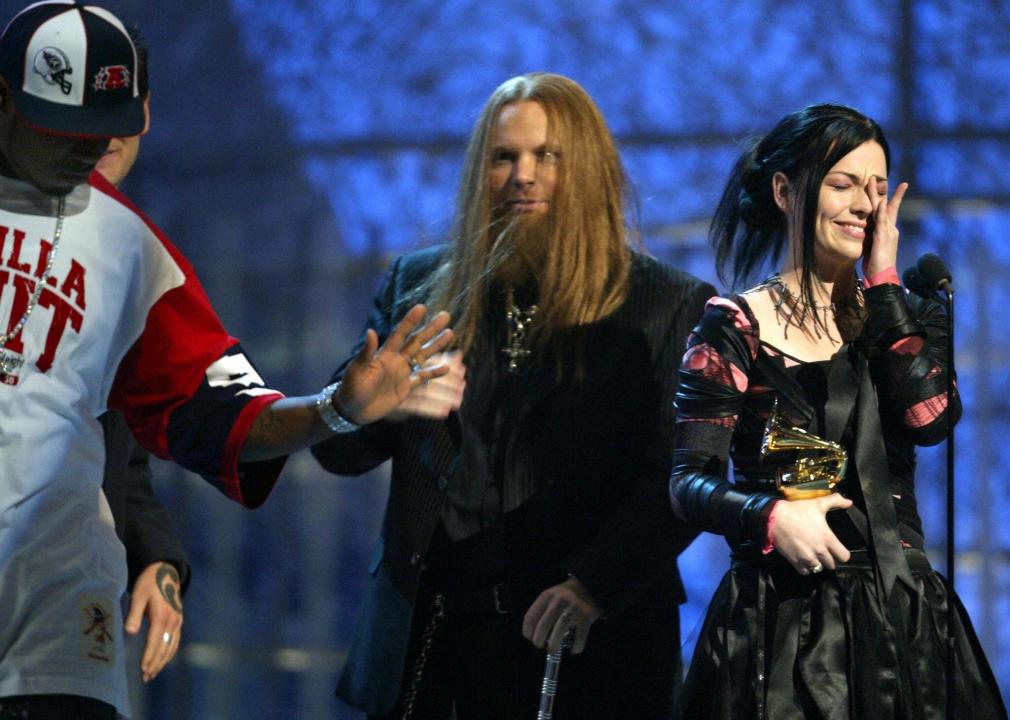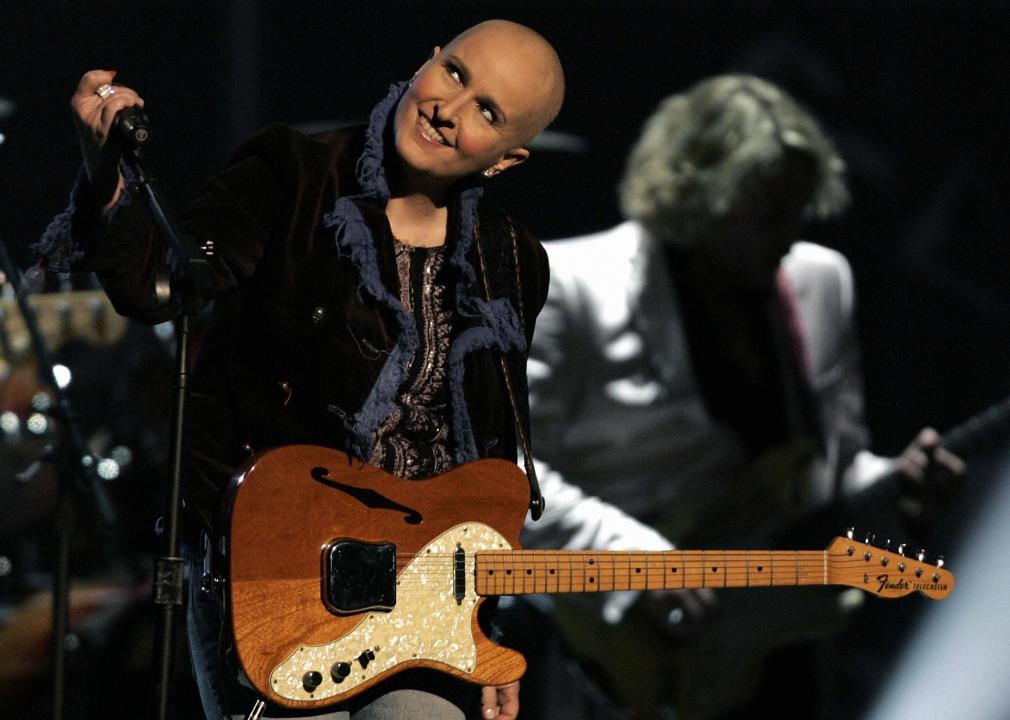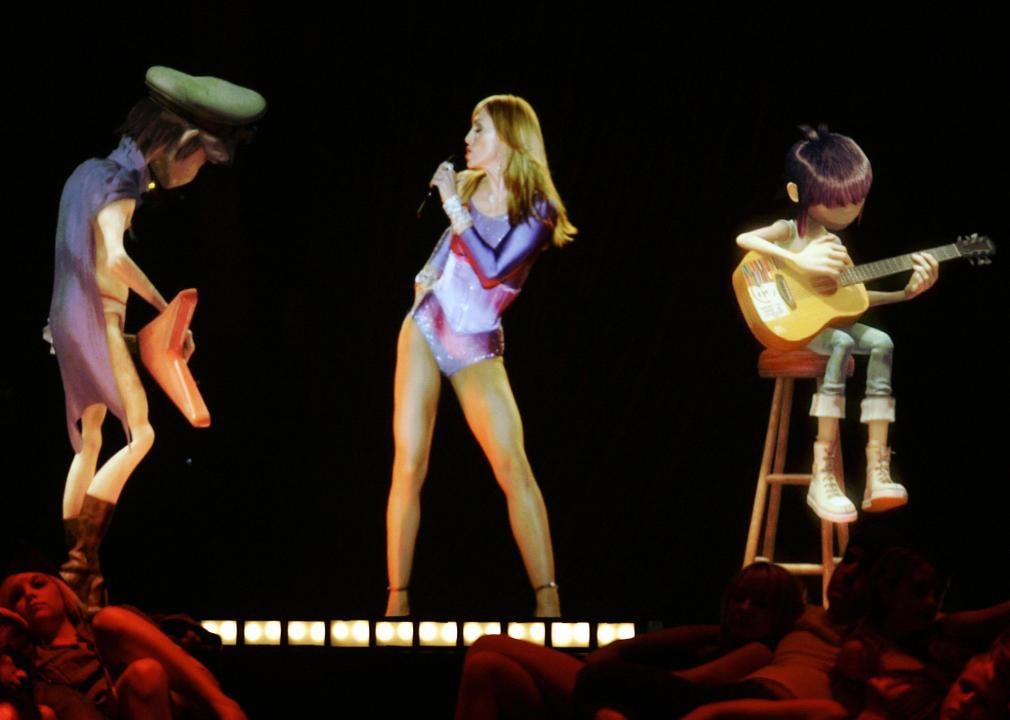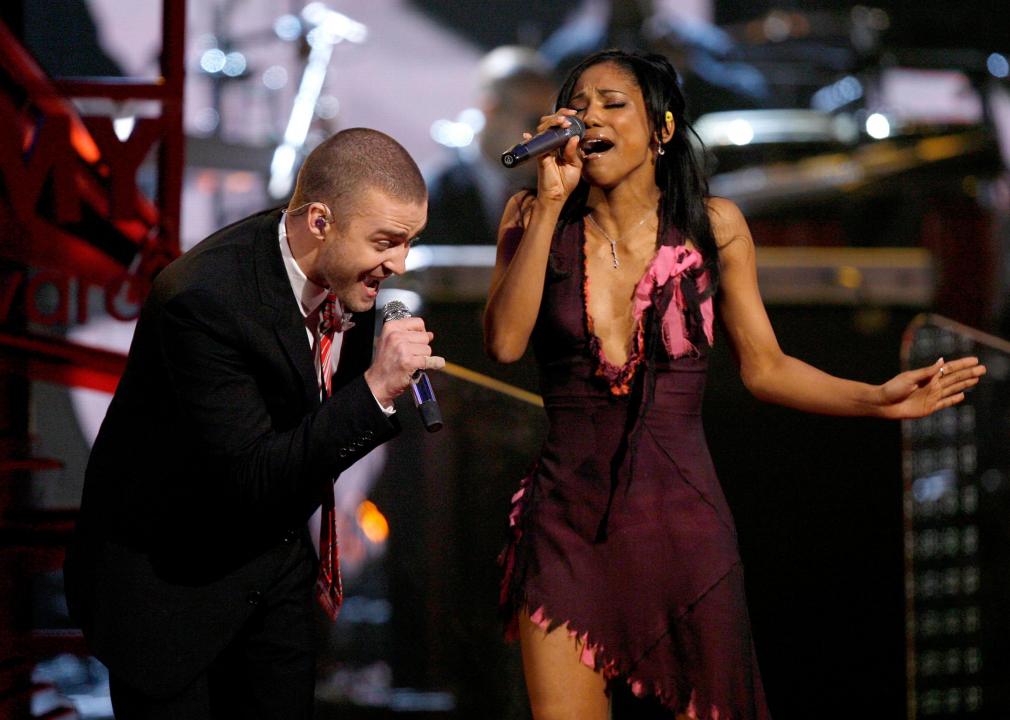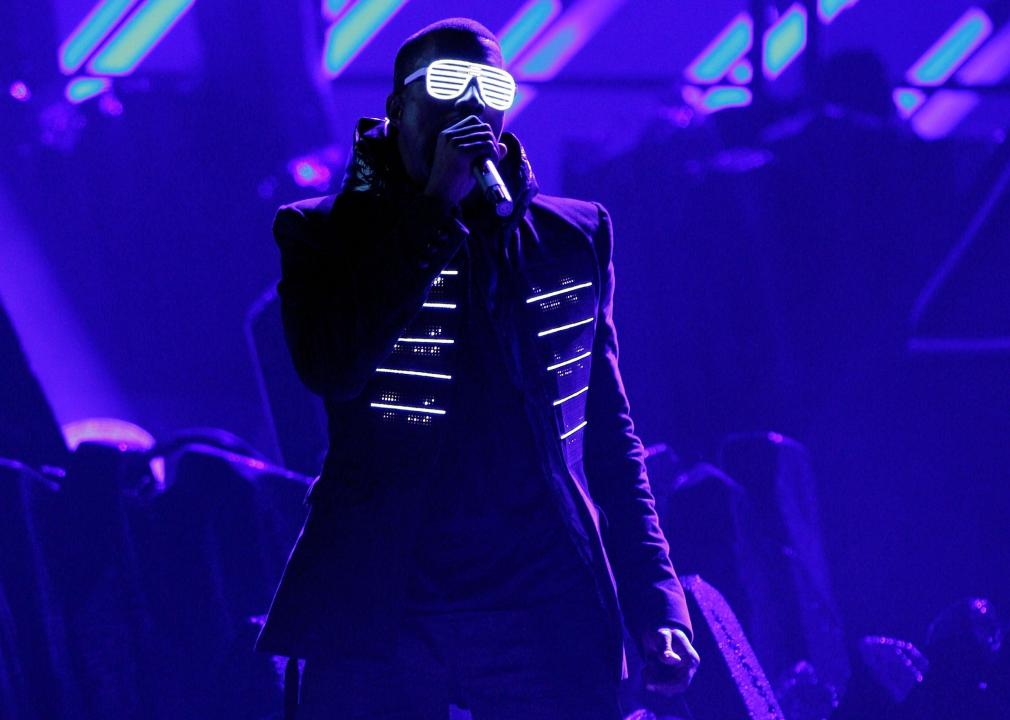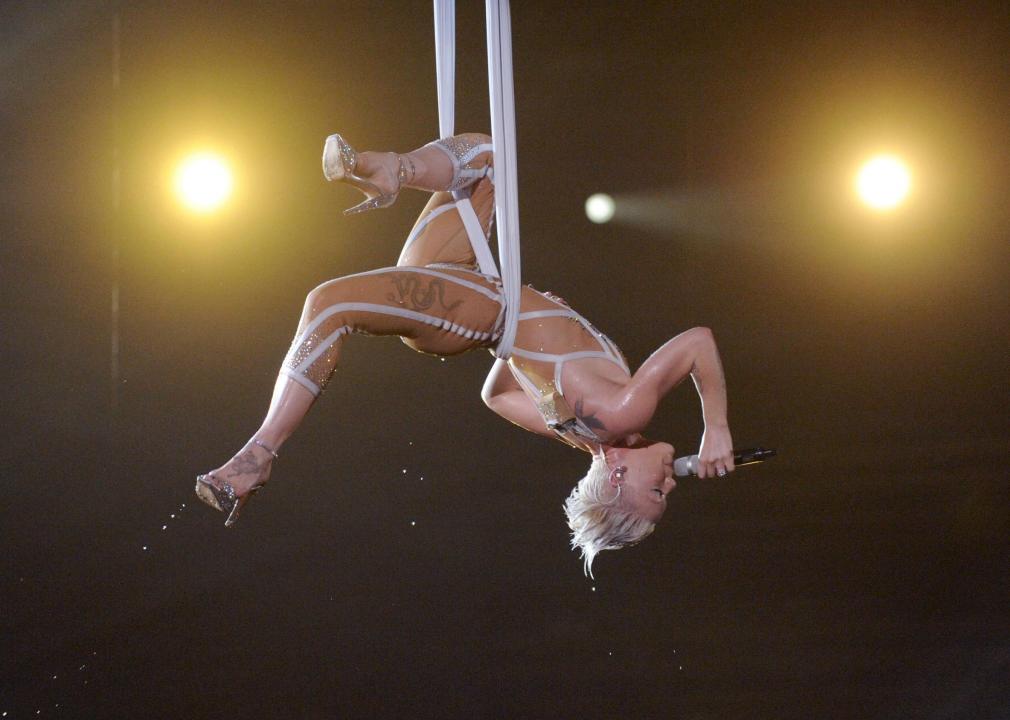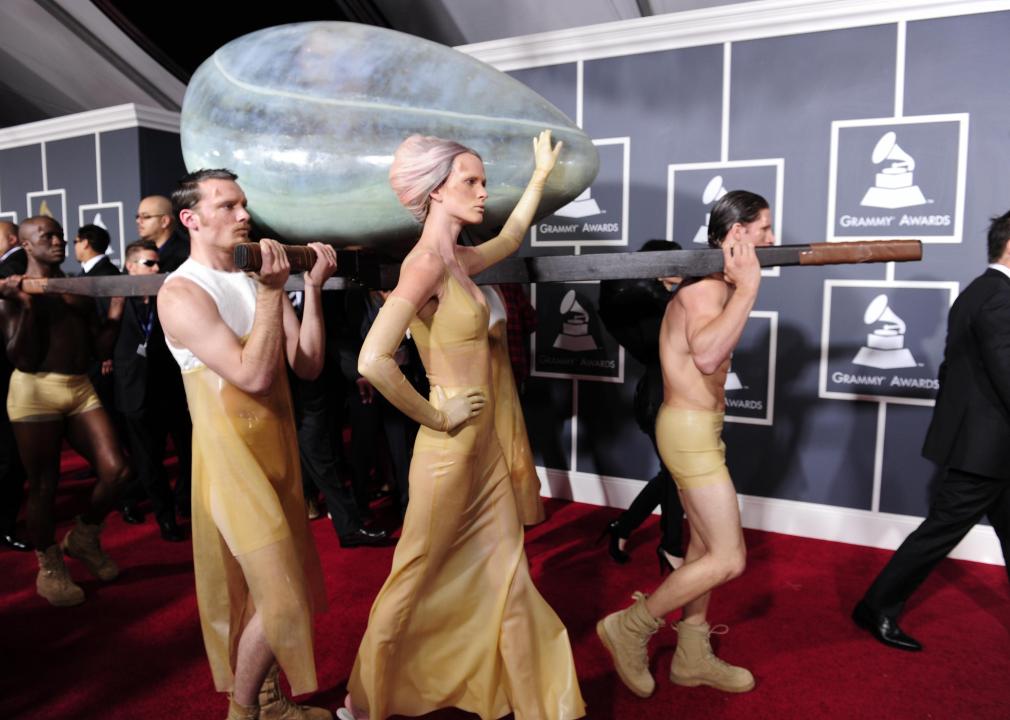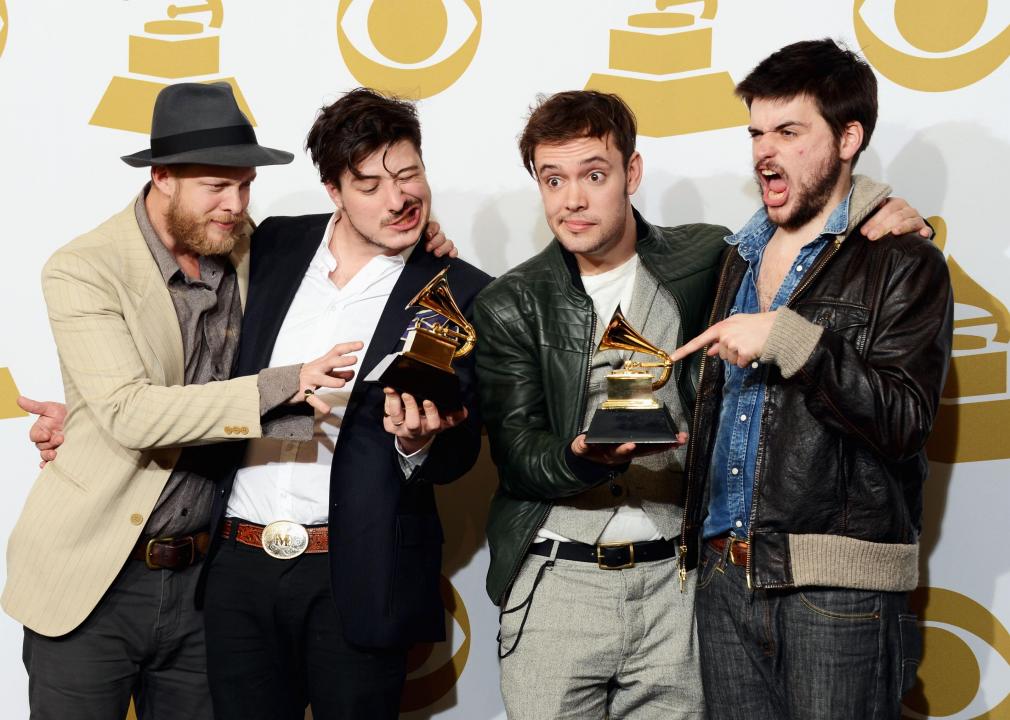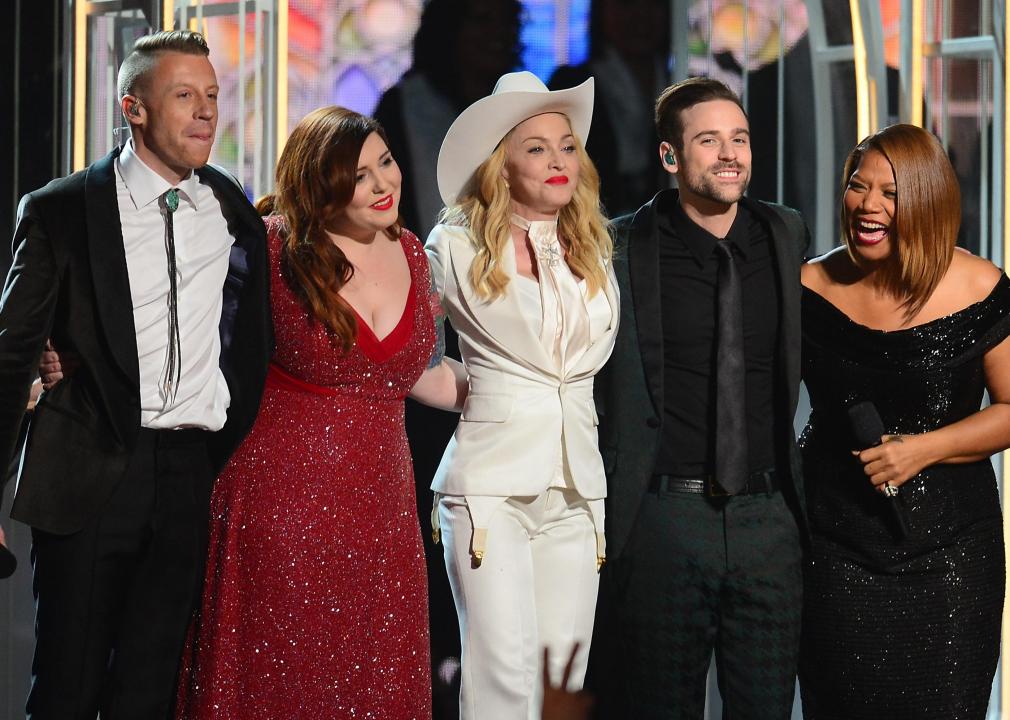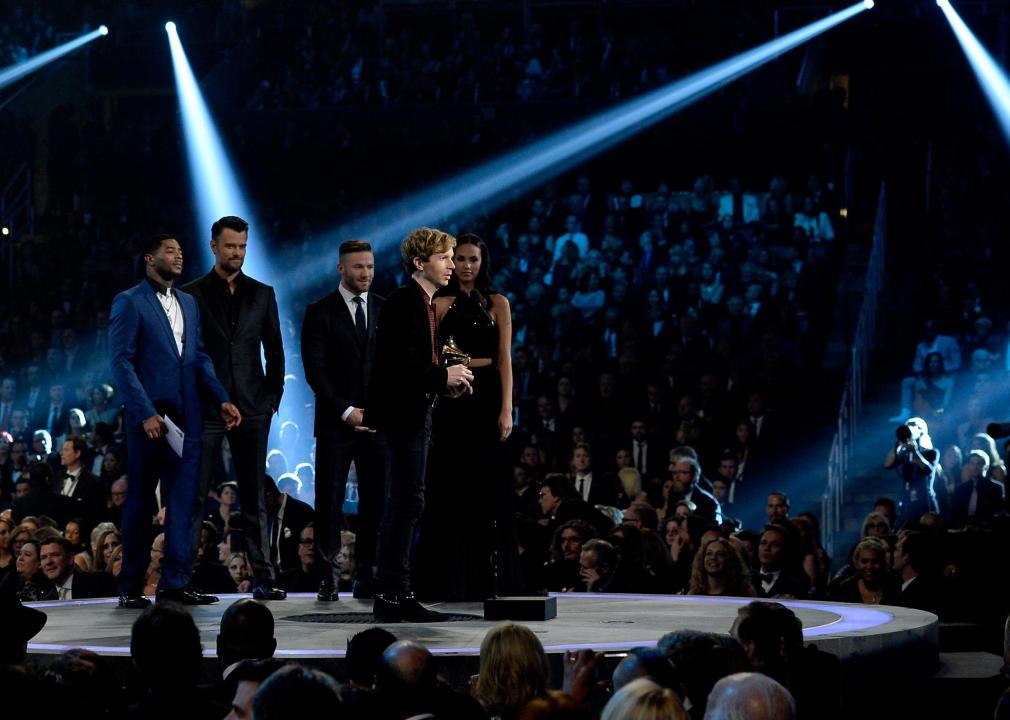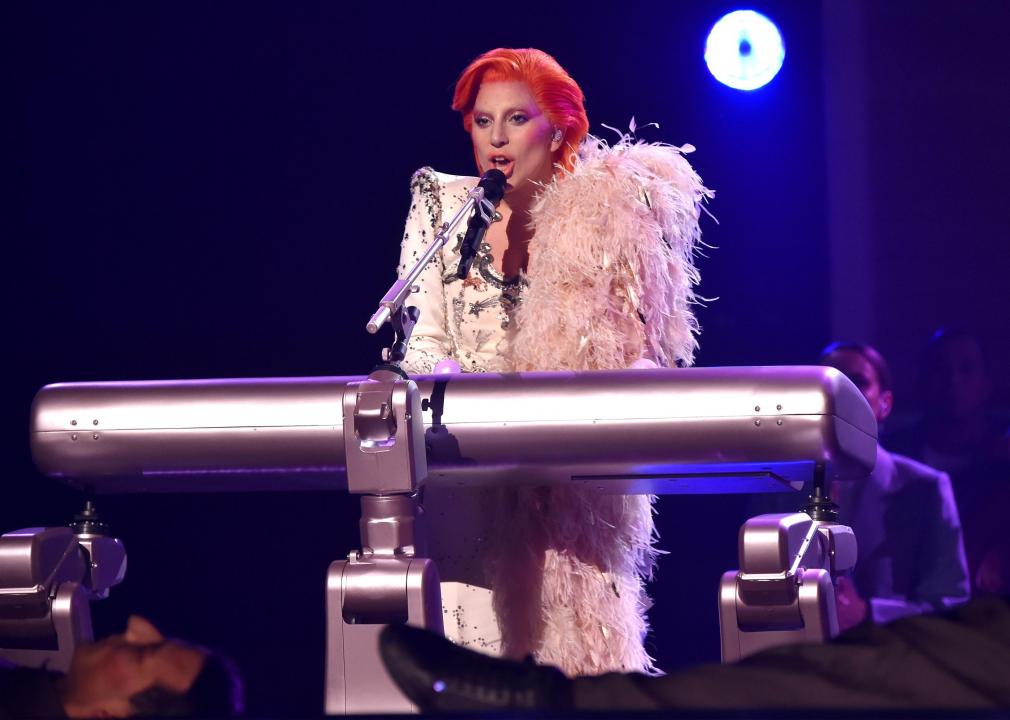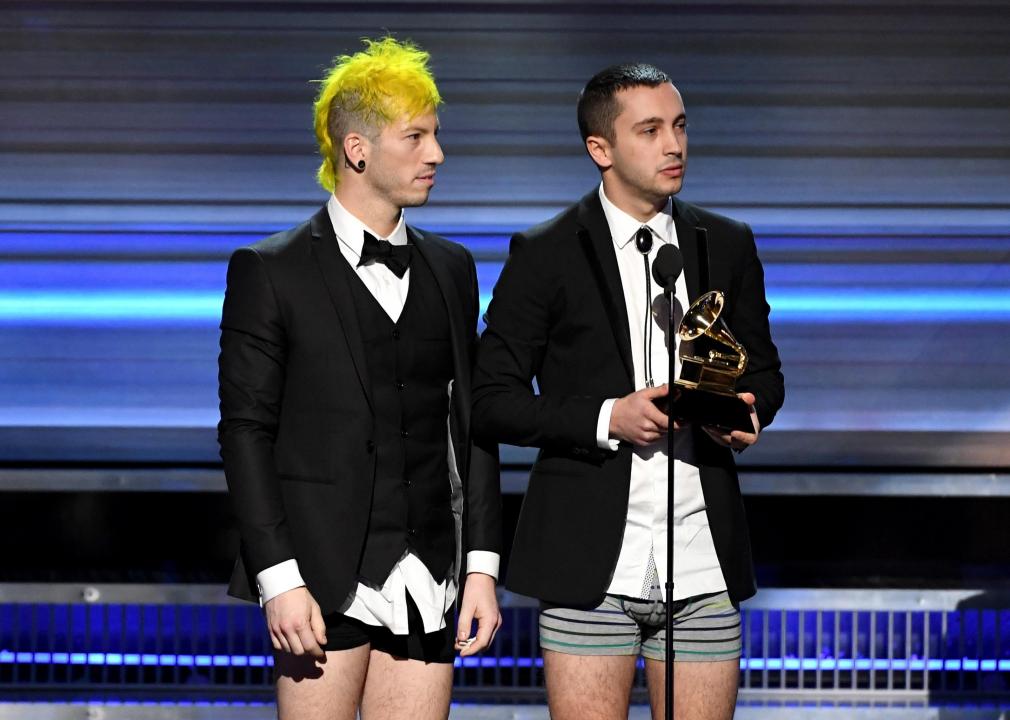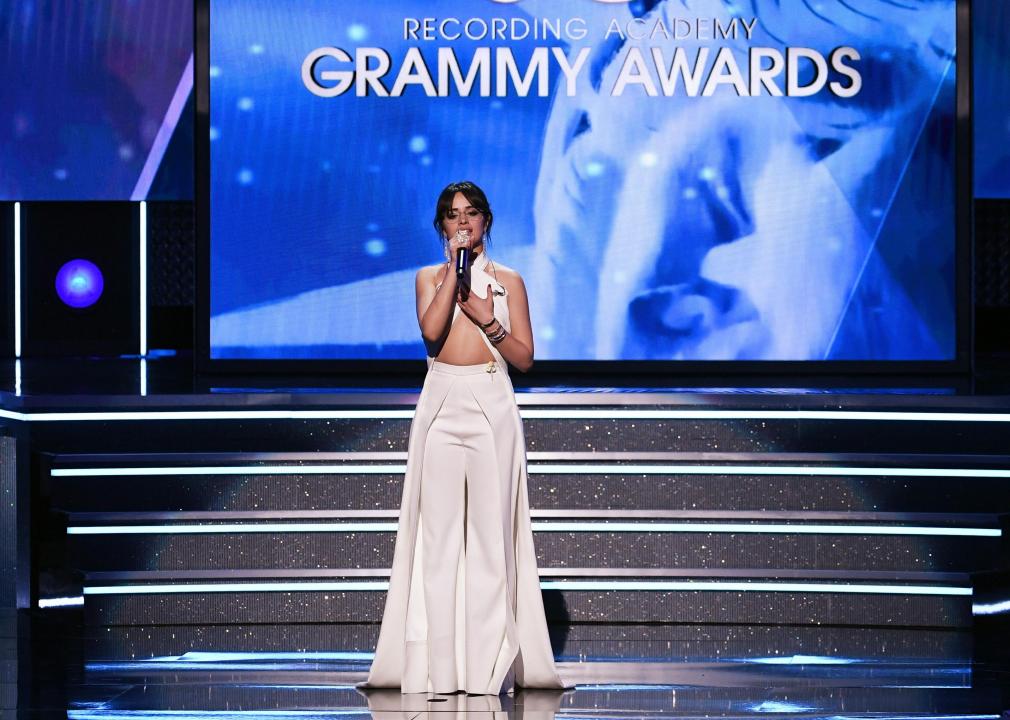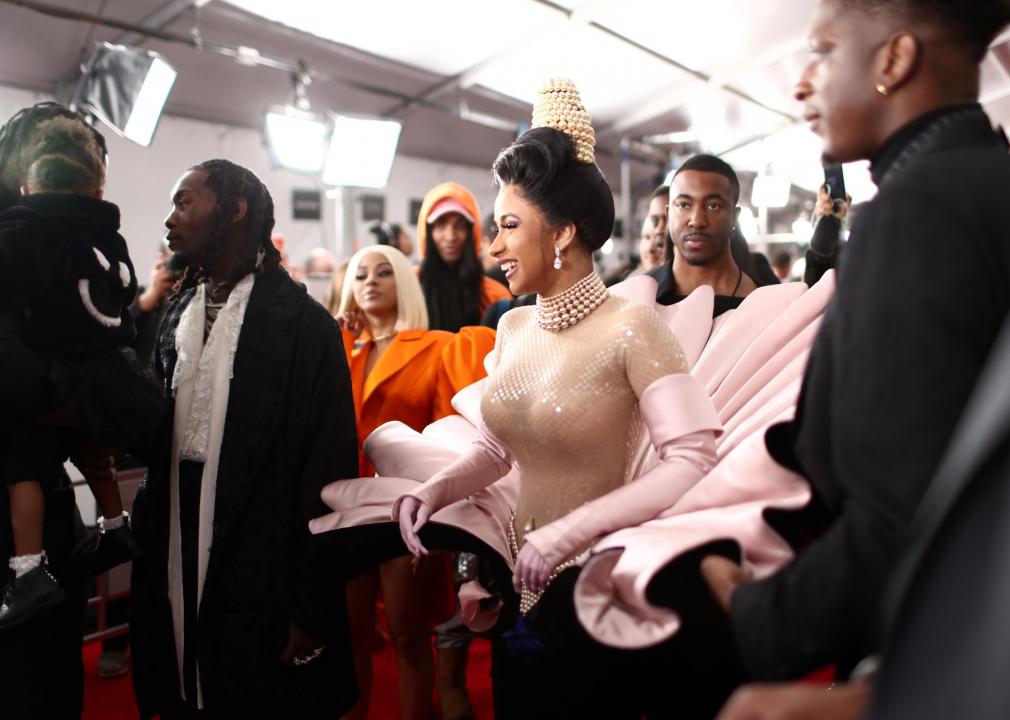Memorable moments from every year in Grammy history
Published 2:39 pm Tuesday, November 16, 2021
Kevin Winter // Getty Images
Memorable moments from every year in Grammy history
Arguably the most prestigious music awards, the Grammy Awards are relatively new when it comes to awards ceremonies. Whereas the Academy Awards began in 1929 and the Emmys commenced in 1949, the first Grammys weren’t held until 1959. The creation of the Grammy Awards was inspired by the Hollywood Walk of Fame project, which brought about a renewed interest in the music and recording industry. As a result, the Recording Academy created what was then called the Gramophone Awards to honor the best composers, musicians, songwriters, and producers.
That first year, the Grammys only had 28 categories, but by 2019, 84 categories were presented. These gold-plated gramophones aren’t just given out for new music in a variety of genres, either, they’re also awarded for innovations in music, philanthropy, and education. Winners are determined by a panel of music experts and Recording Academy members who vote on entries for each award submitted by recording studios. While the process is a good one, it is, like any other, flawed. Over the years there have been some pretty major upsets and some winners who seem to have come from left field.
Stacker rounded up unforgettable moments at the Grammys by the year, using sources like the official Grammy Awards website, news sources, and pop culture sites. Memorable occurrences include jaw-dropping fashions, indelible performances, heartbreaking tributes, bizarre interruptions, and more truly remarkable memories. Keep reading on to find out when the first live telecast took place and which songstress wore a dress that literally broke the internet.
You may also like: 30 stars who hit their stride late in life
![]()
William P. Gottlieb // Wikimedia Commons
1959: The inaugural Grammy Awards
On May 4, 1959, the first Grammy Awards were held in hotel ballrooms in Los Angeles and New York City. Running simultaneously, the black-tie events honored stars like Ella Fitzgerald, David Seville and the Chipmunks, and Domenico Modugno. Frank Sinatra was the most nominated artist of the night with six nominations in total, but he ended up going home with only one award for Best Album Cover for his rendition of “Only the Lonely.”
[Pictured: Ella Fitzgerald, First Annual Grammy Awards winner of the Best Vocal Performance, Female and Best Jazz Performance, Individual awards.]
NBC // Getty Images
1959: The first Grammys television special
The year 1959 saw not one but two Grammy Awards. The second awards ceremony, which took place in November of that year, was shown on television as a pre-recorded “NBC Sunday Showcase” hosted by Meredith Wilson, writer of the Broadway hit “The Music Man.” Frank Sinatra fared better this go-round, winning Album of the Year for “Come Dance with Me” and Best Male Vocal Performance for the album’s title track.
[Pictured: Second Annual Grammy Awards winner Duke Ellington for Best Performance By a Dance Band, Best Musical Composition First Recorded and Released in 1959, and Best Soundtrack Album.]
William Morris Agency // Wikimedia Commons
1961: A genius recognized
Ray Charles all but swept the third annual Grammy Awards, held in April 1961. The musician took home four awards in total: Best Vocal Performance Single Record Or Track, Male (“Georgia On My Mind”); Best Vocal Performance Album, Male (“The Genius of Ray Charles”); Best Performance By A Pop Single Artist (“Georgia On My Mind”); and Best Rhythm & Blues Performance (“Let The Good Times Roll”).
[Pictured: Ray Charles in one of his classic poses at the piano.]
Bettmann // Getty Images
1962: Judy at Carnegie Hall
Judy Garland took the stage in a 1961 performance at Carnegie Hall that has been called “perfection” and lauded as “the greatest night in show business history.” The performance marked a triumphant return for the star, whose personal life had been plagued with scandals and drama for years. A recording of the concert (“Judy at Carnegie Hall”) won four Grammys at the 1962 awards, including Album of the Year, which made Garland the first woman to ever win the prestigious award.
[Pictured: Judy Garland leans over the footlights to greet some of her enthusiastic fans during her concert at Carnegie Hall.]
CBS Radio // Wikimedia Commons
1963: The first Lifetime Achievement Award
In 1963, Grammy Awards host Frank Sinatra honored Bing Crosby with the Recording Academy’s first-ever Lifetime Achievement Award. Giving voice to what everyone in the audience that night had to be thinking, Sinatra confessed, “We all stole from him,” before revealing that the vote to recognize the famous crooner had been unanimous. In turn, Crosby thanked the Academy, Thomas Edison, and “most of all… you who listen to records.”
[Pictured: Bing Crosby in September 1951.]
You may also like: 100 best movies of all time
Public Domain // Wikimedia Commons
1964: Barbra, Barbra, Barbra!
Now a fixture at the Grammy Awards, Barbra Streisand made her first appearance at the 1964 ceremony as a young 20-something. She took home two gramophones that evening, for Album of the Year and Best Female Vocal Performance.
[Pictured: Promotional photo of Barbra Streisand in 1966.]
United Press International // Wikimedia Commons
1965: Beatlemania
Beatlemania took over the Seventh Annual Grammy Awards, with the fab four taking home two trophies for Best New Artist and Best Performance by a Vocal Group. The Beatles performed for the awards as well, singing “I’m Happy Just to Dance with You” for the post-Grammys telecast, “The Best on Record.”
[Pictured: The Beatles wave to fans after arriving at Kennedy Airport in February 1964.]
Evening Standard // Getty Images
1966: The Bob Dylan omission
The Eighth Annual Grammys stoked controversy when Bob Dylan’s 1965 album “Like a Rolling Stone” received nary a single nomination. In response to the slight, Variety ran an article titled “Razzberries for GRAMMYS,” and Charles Champlin of the Los Angeles Times took the Academy to task for the oversight in his piece on the ceremony, remarking, “The electric-haired poet-composer-performer…has to be counted one of the most influential as well as one of the biggest money-spinning talents to emerge big in 1965.”
[Pictured: American folk-pop singer-songwriter, Bob Dylan in April 1965.]
MGM // Getty Images
1967: Elvis has entered the Grammys
The King of Rock ’n’ Roll never won a single Grammy for any of his hip-shaking hits. Instead, all three of his gramophones were awarded for his gospel music. The first of these awards, Best Sacred Performance, came in 1967 for his second gospel album “How Great Thou Art.”
Monti Spry // Getty Images
1968: The Grammys’ 10th anniversary
In 1968, the Grammy Awards celebrated a decade of ceremonies. The Recording Academy, the ceremony itself, and gold-plated gramophones had by this point taken on a new luster. Andy Williams, the host of that year’s “The Best on Record” show, summed up this new credibility best saying, “These are the Grammys. Herb Alpert uses them for earrings. Henry Mancini uses them for doorstops. The Beatles paid off their guru with four or five…This is the Oscar, the Emmy, the Tony of the recording industry.”
[Pictured: Drummer Ringo Starr of the Beatles congratulates EMI recording studio audio engineer Geoff Emerick (left) on his Grammy Award in 1968.]
You may also like: 30 celebrities you might not know are Canadian
NBC // Getty Images
1969: The first on-air award
While the Grammy Awards had yet to be televised, 1969 brought with it the first on-air award presentation. Instead of announcing the winner for Record of the Year during the dinner as per usual, the Academy made the announcement during “The Best on Record” special nearly two months later. In order to keep the true winner a secret until that time, all five nominated artists pre-recorded acceptance speeches with the network slotting in the appropriate tape only an hour before the show was due to air.
[Pictured: Singer Eydie Gorme (left) with Grammy-winner Dionne Warwick during the 11th Annual Grammy Awards.]
Heinrich Klaffs // Wikimedia Commons
1970: Gramophones for ‘A Boy Named Sue’
Johnny Cash in 1970 took home the trophy for Best Country Song thanks to the Shel Silverstein-penned hit “A Boy Named Sue.” The song was a smash hit, going gold before it even reached #1 on the Billboard charts.
[Pictured: Johnny Cash performing in Bremen, Germany, in 1972.]
Keystone // Getty Images
1971: The first live telecast
In 1971, the Grammy Awards aired live on television for the first time. The 90-minute special was broadcast from the Hollywood Palladium and marked the end of the pre-recorded “The Best on Record” as well as the bi-coastal awards dinners, both of which had been traditions since the early days of the ceremony.
[Pictured: Paul McCartney and his wife Linda attend the 13th Grammy Awards at the Hollywood Palladium on March 16, 1971.]
Jack Kay // Getty Images
1972: Grammys move east
The Grammys ceremony in 1972 was held on the East Coast for the first time, taking place at Felt Forum in New York City (aka the Theater at Madison Square Garden). Carole King was the night’s biggest winner, taking home four awards including Song of the Year for “You’ve Got a Friend.” She was the first woman to claim this top honor.
[Pictured: Carol King and James Taylor in 1971, the year they both recorded versions of “You’ve Got a Friend.”]
CBS Television // Wikimedia Commons
1973: God is a woman
If nothing else, the success of Ariana Grande’s 2018 song “God Is a Woman” demonstrates that the culture at large is at least somewhat accepting of the idea of a female deity. Unfortunately for Helen Reddy, that was not the case in 1973. Upon accepting her award for Best Female Pop Vocal Performance for “I Am Woman,” Reddy thanked God, saying, “She makes things possible.” The move did not go over well with the conservative audience.
[Pictured: Carol Burnett from “The Carol Burnett Show” in October 1973.]
You may also like: Song of the summer the year you graduated high school
CMA-Creative Management Associates // Wikimedia Commons
1974: A two-time champion
Singer-songwriter Roberta Flack made Grammys history when she won a second consecutive Record of the Year award in 1974 for “Killing Me Softly With His Song.” She won the same award in 1973 for her album “The First Time I Ever Saw Your Face.” U2 followed suit in 2001 and 2002 with albums “Beautiful Day” and “Walk On”; Billie Eilish did so in 2020 and 2021 with “Bad Guy” and “Everything I Wanted.”
[Pictured: Roberta Flack, July 1973.]
Tim Boxer // Getty Images
1975: Simon, Garfunkel, and Newton-John
When Olivia Newton-John won top honors for her album “Honestly I Love You” in 1975, she curiously wasn’t around to accept the Record of the Year trophy from presenters Paul Simon, John Lennon, and Andy Williams. Art Garfunkel (of Simon & Garfunkel) accepted it for her. But as he took to the stage to collect the gramophone, Simon hit him with an awkward zinger: “I thought I told you to wait in the car.” The men had recorded their last album together in 1970.
[Pictured: Art Garfunkel, Paul Simon, Yoko Ono, John Lennon, and Roberta Flack pose together backstage at the Grammy Awards, Uris Theater, New York City.]
Keystone // Getty Images
1976: Paul Simon thanks Stevie Wonder
When Paul Simon won Album of the Year for “Still Crazy After All These Years,” he thanked the usual people like his producer and collaborator Art Garfunkel as well as a handful of other folks. He jokingly added, “And most of all, I’d like to thank Stevie Wonder, who didn’t make an album this year.” Wonder had won the award in 1974 and 1975—and would win again in 1977—for different works.
[Pictured: Paul Simon performing in London.]
CBS Photo Archive // GettyImages
1977: A global night
The 19th Annual Grammys were the most global Grammys up to that point, with telecasts transmitted to Hong Kong and the Far East via satellite. Another global citizen, Stevie Wonder, appeared and performed, via satellite from Lagos, Nigeria. Unfortunately, technical difficulties rendered Wonder’s performance of “Sir Duke” almost impossible to hear or see, leaving it to pack a much weaker punch than if the artist had performed in person.
[Pictured: Peter Frampton presents during the 19th Annual Grammy Awards at the Hollywood Palladium on February 19, 1977.]
Hulton Archive // Getty Images
1978: A tie for Song of the Year
It’s not often that we see a tie at the Grammy Awards, but in 1978, two songs took home the gramophone for Song of the Year. Debby Boone’s “You Light Up My Life” and the Barbra Streisand/Paul Williams collaboration, “Love Theme From A Star Is Born (Evergreen),” both received the night’s highest honor.
[Pictured: Barbra Streisand and Paul Williams hold Golden Globe awards for their song “Evergreen” in 1977.]
You may also like: 50 ways music has changed in the last 50 years
Larry Hulst // Getty Images
1979: Steve Martin forgets his pants
Comedian Steve Martin was tasked in 1979 with presenting Best Pop Vocal Performance. Keeping in line with his brand of offbeat, sometimes raunchy humor, he handed out the gramophone while dressed only in his underwear and the top half of his tuxedo. Oddly enough, it’s not the last time a celebrity took to the stage in just their skivvies.
[Pictured: Steve Martin performing at the Community Center in Sacramento, California, in the 1970s.]
Columbia // Wikimedia Commons
1980: The ‘You Don’t Bring Me Flowers’ duet
The Barbra Streisand and Neil Diamond “You Don’t Bring Me Flowers” duet was never actually intended to be a duet. Instead, a DJ mixed both artists’ versions of the track together as a divorce present for his ex-wife, and fans went crazy, almost forcing the two artists to properly record the track together. In 1980, Streisand and Diamond performed the tear-jerker together on the Grammy’s stage in what some describe as “pure magic.”
[Pictured: The cover art for “You Don’t Bring Me Flowers” single by Barbra Streisand and Neil Diamond.]
Henry Diltz // Getty Images
1981: Christopher Cross and the Big Four
In 1981, newcomer Christopher Cross was nominated for six Grammy awards. He took home five, including the “Big Four” (Album of the Year, Record of the Year, Song of the Year, and Best New Artist).
[Pictured: Christopher Cross performing in 1980 with his popular song “Ride Like the Wind.”]
Anthony Cox // GettyImages
1982: John Lennon’s posthumous Grammy
Undoubtedly the most moving moment of the 1982 Grammys was the announcement that the award for Album of the Year would be given to Yoko Ono and John Lennon for “Double Fantasy.” Ono accepted the award with the couple’s young son, Sean Lennon, saying of her late husband: “I think John is here with us today. Both John and I were always very proud and happy that we were part of the human race. He made good music for the earth and for the universe.”
[Pictured: John Lennon with his wife Yoko Ono.]
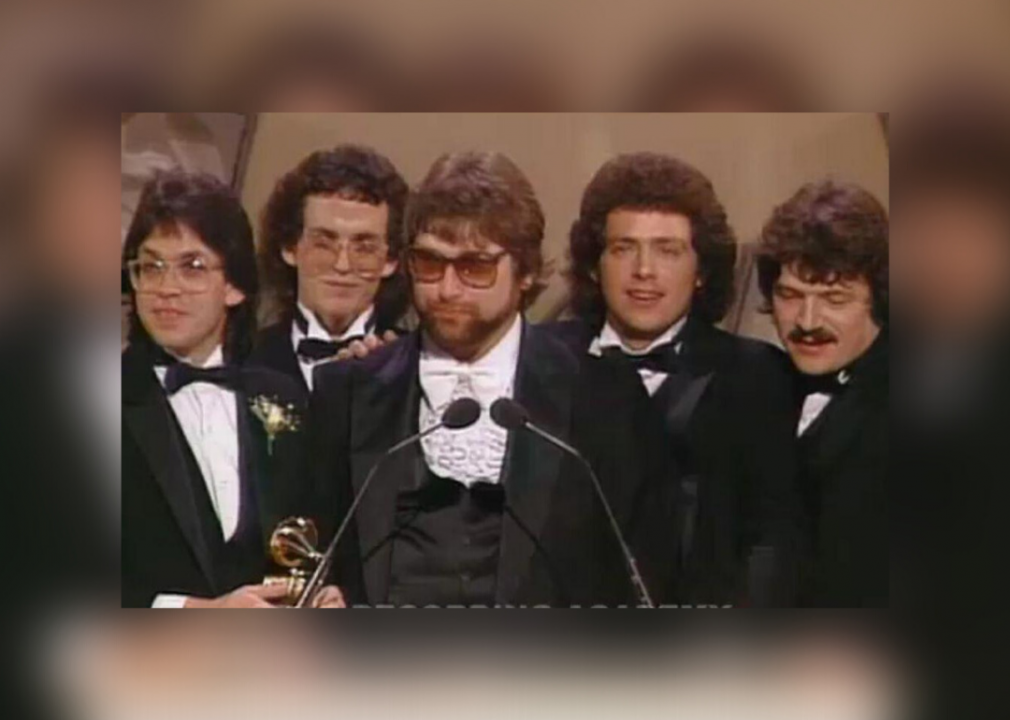
Pierre Cossette Enterprises
1983: The 25th anniversary celebration
The 1983 Grammy Awards were the 25th iteration of the ceremony and the Recording Academy celebrated in style. Several of the greatest Grammy moments were replayed via video screen throughout the course of the evening. And the night’s biggest performance saw Ray Charles, Count Basie, Jerry Lee Lewis, and Little Richard take the stage all at once, playing some of their greatest hits on four different pianos.
[Pictured: The 25th Annual Grammy Awards.]
You may also like: 30 best episodes of ‘Whose Line Is It Anyway?’
Chris Martinez // Getty Images
1984: Annie Lennox’s power move
In 1984, Annie Lennox surprised everyone—including Grammy production staffers—when she took the stage in drag to perform her hit “Sweet Dreams (Are Made of This).” Wearing a dark suit, mutton chops, and lowering her voice to a deeper register, Lennox was totally unrecognizable. But the stunt was more than just a practical joke, it was Lennox’s way of taking the ever-present chatter about her gender identity and androgyny back into her own hands.
[Pictured: Annie Lennox performs a medley of “I Saved the World” and “Sweet Dreams” in 2000.]
Pierre Cossette Enterprises
1985: ‘Baby I’m a Star’
Prince never did things halfway, and his 1985 Grammys performance of “Baby I’m a Star” was no exception. The singer grooved his way through several complex dance routines, gyrated on his microphone stand, and finally stormed out when out-of-control audience members took to the stage to join in on the fun.
Pierre Cossette Enterprises
1986: Whitney’s big night
The year 1986 was a big one for newcomer pop queen Whitney Houston. She performed her first chart-topper “Saving All My Love for You” on the Grammys’ stage, and later took home her first award (Best Female Pop Vocal Performance) for the track.
Unknown // Wikimedia Commons
1987: Acknowledging the AIDS crisis
Taking home Song of the Year at the 1987 Grammys was “That’s What Friends Are For,” written by Burt Bacharach and Carole Bayer Sager and famously performed by Dionne Warwick, Elton John, Gladys Knight, and Stevie Wonder. Proceeds of the song, which ultimately topped $3 million, went toward the American Foundation for AIDS research.
[Pictured: Jam session photo with Stevie Wonder and Burt Bacharach.]
Pierre Cossette Enterprises
1988: A return to New York
For the first time in seven years, the Grammys returned to New York City in 1987. Billy Crystal hosted the event at Radio City Music Hall, opening with a timely joke: “This is a historic building because it’s the only building Donald Trump doesn’t own… yet.” Many of the night’s performances were NYC-centric as well: George Benson performed a cover of “On Broadway” and Billy Joel belted “New York State of Mind.”
Heinrich Klaffs // Wikimedia Commons
1989: A heavy upset
The Recording Academy announced that a new category would be awarded on Grammys night in 1989: Best Hard Rock/Heavy Metal Performance. Artists like Iggy Pop, AC/DC, Metallica, and Jane’s Addiction were nominated, but the winner, Jethro Tull, was a complete surprise. When Alice Cooper announced that the folk-rock group had won the audience went dead silent for almost a full minute before breaking out in laughter, thinking that Cooper was merely playing a practical joke.
[Pictured: Jethro Tull performing in Hamburg in 1973.]
Alan Light // Wikimedia Commons
1990: Milli Vanilli no more
While it didn’t technically happen at the Grammys but nine months later, stripping the group Milli Vanilli of the Best New Artist award was undoubtedly the biggest Grammy-related news of the year. After it was uncovered that Robert Pilatus and Fabrice Morvan didn’t actually sing their own vocals (in November of 1990), the Recording Academy took back the honor.
[Pictured: Fab Morvan (left) and Rob Pilatus (right) of the German pop duo Milli Vanilli pose with Grammy president C. Michael Greene at the 1990 Grammy Awards.]
AFP // Getty Images
1991: An assortment of awards for Mr. Jones
In 1991, Quincy Jones swept the Grammys, taking home six awards including Album of the Year, Best Rap Performance by a Duo or Group, and Producer of the Year (Non-Classical). At 57 years old, Jones also set the record as the oldest person to ever take home six awards in a single night.
[Pictured: Quincy Jones holds his Grammy Legend Award, on December 5, 1990, in New York City, during a gala hosted by the National Academy of Recording Arts and Sciences.]
TIMOTHY A. CLARY // Getty Images
1992: Natalie Cole’s unforgettable night
Natalie Cole’s “Unforgettable,” a tribute to her father Nat King Cole, swept every category it was nominated for at the 1992 Grammy Awards. The album took home trophies for Record of the Year, Album of the Year, Song of the Year, Best Traditional Pop Performance, Best Instrumental Arrangement Accompanying Vocals, and Best Engineered Album—Non-Classical. Cole’s producer, David Foster, also won Producer of the Year.
[Pictured: Singer Natalie Cole holds up the Grammy Award she won.]
SINEAD LYNCH // Getty Images
1993: Tears for Connor
Rock guitarist Eric Clapton’s 4-year-old son, Conor Clapton, died in 1991 after falling out of a 53rd-floor apartment window in New York City. Clapton famously penned “Tears in Heaven” for his young son. When Clapton performed an acoustic version of the song at the 1993 Grammy Awards, there wasn’t a dry eye in the house. Making the moment even sweeter, the track won Song of the Year that same night.
[Pictured: Eric Clapton poses at Christie’s with his 1956 Fender Stratocaster guitar.]
You may also like: The richest country music stars
Ron FREHM // Getty Images
1994: Frank Sinatra gets cut off
Frank Sinatra is inarguably one of the most defining voices of modern-day music. So when the Recording Academy honored him with a Lifetime Achievement Award in 1994 presented by Bono, it seemed perfectly fitting—until they cut him off mid-acceptance speech, thanks to his rambling nature.
[Pictured: Bono, lead singer of the group U2 (R), shakes hands with singer Frank Sinatra after Sinatra was honored with a Lifetime Achievement Award at the 36th Annual Grammy Awards.]
Kevin Winter // Getty Images
1995: The ‘state of the arts’ speech
One particularly memorable moment of the 37th Grammy Awards was Recording Academy President Michael Greene’s impassioned speech about the state of the arts. Calling for more support and a more thoughtful approach, Green said: “We are here tonight on the brink of becoming the only industrialized nation in the world with absolutely no federal support for the arts. We must not allow the arts to be politicized, privatized, commercialized, sanitized, neutralized or zeroed out.”
[Pictured: President and CEO of the Recording Academy, Michael Greene.]
skinnylawyer // Wikimedia Commons
1996: One sweet night
At the 1996 Grammy Awards, Mariah Carey and Boyz II Men joined forces to perform their massive hit “One Sweet Day.” The track was a smash, remaining the longest-running #1 track on the Billboard Top 100 until Lil Nas X’s “Old Town Road” unseated it in August 2019.
[Pictured: Mariah Carey and Boyz II Men performing the song “One Sweet Day” at Madison Square Garden.]
JON LEVY // Getty Images
1997: LeAnn Rimes’ record-breaking wins
Country crooner LeAnn Rimes was just 14 years old in 1997 when she was awarded Best New Artist and Best Female Country Vocal Performance, becoming the youngest Grammy winner of all time. In interviews that evening, country legend Clint Black quipped “When I was 14, I had a paper route.”
[Pictured: LeAnn Rimes holds up her two Grammy Awards.]
The Recording Academy
1998: The soy bomb
Young performance artist Michael Portnoy was hired to be a backup dancer for Bob Dylan’s 1998 Grammys performance. Seconds into Dylan’s song “Love Sick,” Portnoy removed his shirt to reveal the words “Soy Bomb” painted on his chest, rushed to the front of the stage, and began dancing robotically, essentially stealing the show. The native New Yorker later revealed that the words were a poem that described what he thought art should be about, but at the time, the audience was too stunned to know what to make of the display.
[Pictured: Bob Dylan performs “Love Sick” alongside protester/performance artist Michael Portnoy.]
You may also like: Most famous musician born the same year as you
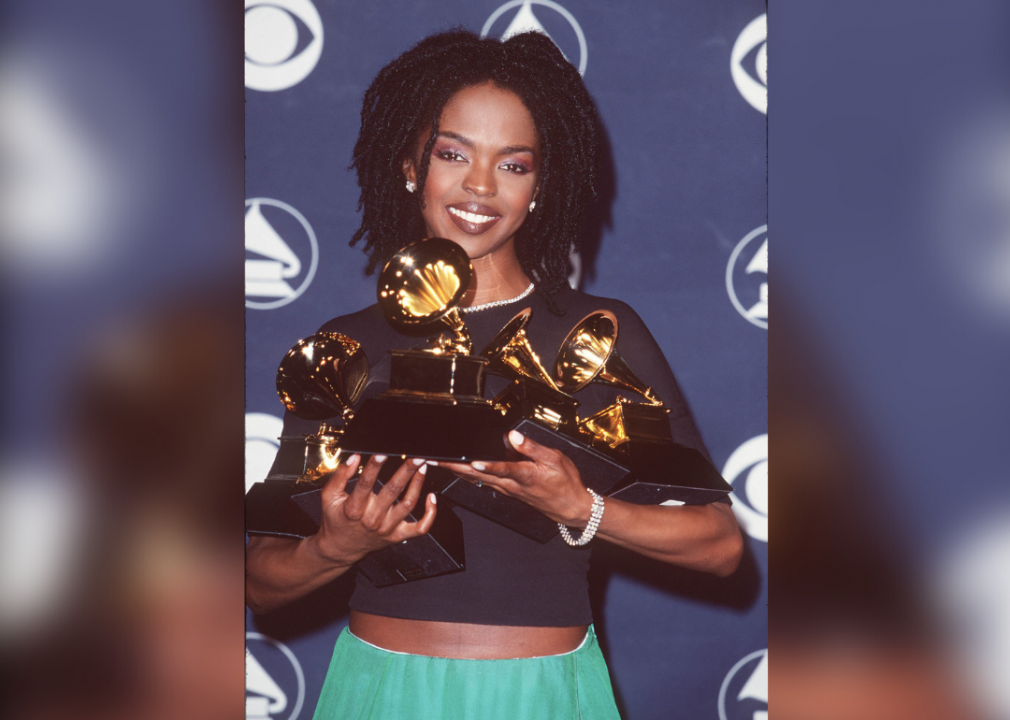
Steve Granitz/WireImage // Getty Images
1999: Women get their due
The 41st Annual Grammy Awards represented a huge night for women in the music industry. Greats like Lauryn Hill, Celine Dion, Madonna, Alanis Morissette, Sheryl Crow, and Dixie Chicks all took home trophies for their work. Hill was the night’s biggest winner, with “The Miseducation of Lauryn Hill” winning Album Of The Year (a first for any hip-hop artist), Best New Artist, Best Female R&B Vocal Performance, Best Rhythm & Blues Song, and Best R&B Album.
Charbonneau // Shutterstock
2000: The dress heard ‘round the world
In what was arguably the most iconic Grammys fashion moment of all time, Jennifer Lopez walked the red carpet in a plunging emerald-green chiffon Versace number. To hear her former stylist, Andrea Lieberman, tell it, she grabbed as she was racing down Fifth Avenue on her way to a last-minute fitting with the star. “When she tried it on, everyone knew it was the dress,” Lieberman said. Lopez wore the Versace dress again twice in 2019, at Fashion Week and during her monologue on “Saturday Night Live.”
Kevin Winter // Getty Images
2001: Elton and Eminem
One of the biggest hits of 2001 was Eminem’s “The Marshall Mathers LP.” While many loved the album, it also received plenty of criticism for its homophobic, misogynistic, and violent content. So when Elton John joined Eminem on stage to perform “Stan,” hugging the rapper at the end of the performance, it sent shockwaves through the music industry and made a huge statement.
[Pictured: Elton John and Eminem at the 43rd Annual Grammy Awards at Staples Center, Los Angeles.]
Kevin Winter // Getty Images
2002: The 9/11 tributes
Airing just a few short months after the tragedies of 9/11, the 2002 Grammys were chock full of tributes to those who lost their lives in the disaster and the brave first responders who sacrificed so much to help. One particularly moving tribute was Alan Jackson’s performance of “Where Were You (When the World Stopped Turning),” which Salon.com reporter Eric Boehlert called “a reflective hymn that Americans will be listening to well into the second half of this century.”
[Pictured: Alan Jackson performs live at the 44th Annual Grammy Awards held at the Staples Center.]
Rob Bogaerts // Wikimedia Commons
2003: Simon and Garfunkel reunite
In 2003, Simon and Garfunkel were presented with the Lifetime Achievement Award by the Recording Academy. The honor opened a door between the estranged music partners, and for the first time in a decade, the duo performed together publically. Fittingly, the song that broke their silence was one of their first hits, “The Sound of Silence.”
[Pictured: Simon and Garfunkel performing in the Netherlands in 1982.]
You may also like: 30 best nature documentaries of all time
TIMOTHY A. CLARY // Getty Images
2004: A pre-Kanye, Kanye moment
When Evanescence won the Best New Artist award over 50 Cent at the 2004 Grammys, the rapper was clearly displeased. In a pre-Kanye, Kanye moment, 50 Cent took the stage right as the group began their acceptance speech, stalking around them and flashing the cameras a peace sign before returning to his seat. Ever a pro, Amy Lee made light of the incident, saying, “We’d like to thank 50 Cent,” before finishing her address.
TIMOTHY A. CLARY // Getty Images
2005: The Janis Joplin tribute
Melissa Etheridge was undergoing chemotherapy in 2005 to battle the breast cancer she’d recently been diagnosed with. However, the songstress didn’t let the bleak prognosis stop her from paying tribute to Janis Joplin. She took the stage, completely bald, with Joss Stone to perform “Piece of My Heart.”
[Pictured: Melissa Etheridge performs a Janis Joplin tribute during the 47th Annual Grammy Awards.]
TIMOTHY A. CLARY // Getty Images
2006: A holographic performance
The Gorillaz, a virtual, animated group, in 2006 joined flesh-and-blood popstar Madonna on stage at the Grammy Awards to perform a medley of hits. The bizarre collaboration was achieved thanks to a 19th-century trick called Pepper’s Ghost.
[Pictured: Madonna performs with Gorillaz during the 48th Annual Grammy Awards.]
Kevin Winter // Getty Images
2007: ‘My Grammy Moment’
The 2007 Grammy Awards ushered in a new segment called “My Grammy Moment.” Beginning a month before the ceremony, the public voted on 12 unknown, unsigned finalists, with the winner receiving the opportunity to sing on the Grammy’s stage alongside Justin Timberlake. The winner was Robyn Troup, an 18 year old from Houston, Texas.
[Pictured: Singers Justin Timberlake and “My Grammy Moment” winner Robyn Troup perform “Ain’t No Sunshine” onstage at the 49th Annual Grammy Awards.]
Kevin Winter // Getty Images
2008: The shutter shades
The early 2000s saw some questionable fashion trends, and no one, not even music’s royalty, was safe from some regrettable choices. Take Kanye West’s glow-in-the-dark shutter shades, which completed his trendy look at the 2008 Grammy Awards.
[Pictured: Kanye West performs onstage during the 50th annual Grammy awards.]
You may also like: Controversial songs from the year you were born
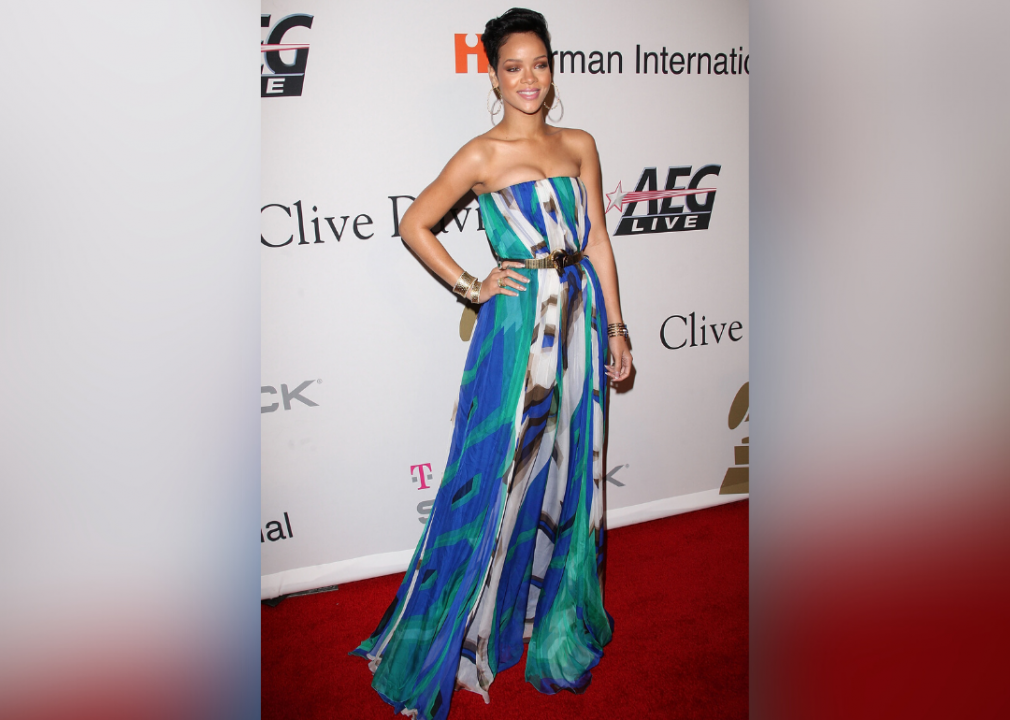
Jason Merritt // Getty Images
2009: Rihanna hospitalized
Rihanna was set to open the Grammy Awards in 2009 but pulled out hours before due to a domestic dispute with then-boyfriend Chris Brown. Sometime after Clive Davis’ pre-Grammys party, Brown allegedly assaulted Rihanna, landing her in the hospital and him in jail. U2 and Al Green stepped in to fill gaps in the ceremony, but that didn’t stop most of the year’s coverage from centering around the abusive relationship.
[Pictured: Singers Al Green and Justin Timberlake perform during the 51st Annual Grammy Awards.]
Kevin Winter // Getty Images
2010: A high-flying performance
The Grammys have seen some incredible performances over the years, but Pink’s 2010 performance stands out thanks to her acrobatics and Cirque du Soleil-inspired moves. Clad in a sheer bodysuit, the pop star twisted around in silks above the audiences’ heads all while singing her hit “Glitter in the Air,” in what she called one of the greatest moments of her life.
[Pictured: Singer Pink performs onstage during the 52nd Annual Grammy Awards.]
ROBYN BECK // Getty Images
2011: An egg-celent arrival
A bona fide eccentric, Lady Gaga arrived on the 2011 Grammys red carpet inside a giant egg accompanied by multiple latex-clad attendees. The pop star spoke to Ryan Secrest through the egg, explaining that the vessel related to her new “Born This Way” single, which made its debut during the ceremony later that night.
[Pictured: An egg-like container with singer Lady Gaga inside arrives for the 53rd Annual Grammy Awards.]
Kevin Winter // Getty Images
2012: A pitch-perfect tribute
Music legend Whitney Houston in 2012 was found dead in a hotel room one day before the Grammy Awards. In a tribute to the icon, Jennifer Hudson put together a last-minute performance of Houston’s hit “I Will Always Love You.” Hudson’s vocal ability and passion earning her a standing ovation from the entire arena.
[Pictured: Jennifer Hudson performs at a taping of “We Will Always Love You: A Grammy Salute To Whitney Houston.”]
Jason Merritt // Getty Images
2013: Year of newcomers
In 2007, there wasn’t any one artist who stood out from the pack by sweeping the awards ceremony. Instead, the wealth was distributed among a host of relative newcomers, including Gotye, fun., and Mumford & Sons. Ultimately, the night was described as “ushering in the winds of change” and set the stage for the state of music in the current decade.
[Pictured: Musicians Ted Dwane, Marcus Mumford, Ben Lovett and Country Winston-Marshall of Mumford & Sons at the 55th Annual Grammy Awards.]
You may also like: Can you answer these real ‘Jeopardy’ questions about movies?
FREDERIC J. BROWN // Getty Images
2014: A truly love-ly evening
Grammy attendees in 2014 surely felt the love when Queen Latifah married 33 gay and straight couples while Macklemore, Ryan Lewis, Madonna, Mary Lambert, and Trombone Shorty performed “Same Love.” As she introduced the marriage equality segment, which brought the audience to tears, Latifah announced, “This song is not a love song for some of us, but for all of us.”
[Pictured: Macklemore, Mary Lambert, Madonna, Ryan Lewis, and Queen Latifah embrace on stage at the 56th Grammy Awards].
Kevork Djansezian // Getty Images
2015: Beck over Beyoncé
In one of the most controversial Grammy upsets in recent years, Beck’s “Morning Phase” beat Beyoncé’s self-titled offering for Album of the Year. Kanye West rushed the stage, ready to interrupt Beck’s acceptance speech but seemed to think better of it, slinking off into the background and only later divulging that he thought Beck should give his award to Beyoncé. The win also sparked a much-needed conversation about the role race plays in the Grammys.
[Pictured: Beck accepts the Best Rock Album award for “Morning Phase” onstage.]
Larry Busacca // Getty Images
2016: The David Bowie tribute
Going into the 2016 Grammys, the most-hyped part of the evening was Lady Gaga’s tribute to David Bowie. It seemed like a perfect fit—one eccentric artist’s salute to another. However, in reality, the performance received less than stellar reviews thanks to its hectic and chaotic feel. Chalk it up to one too many costume changes, maybe?
[Pictured: Lady Gaga performs a tribute to the late David Bowie onstage.]
Kevin Winter // Getty Images
2017: A pants-less acceptance
In 2017, Twenty One Pilots won the Grammy from Best Pop Duo/Group Performance for “Stressed Out.” Before hitting the stage to make their acceptance speech, the duo dropped their pants, stripping down to their skivvies. Their explanation? Back when they were nobodies, they made a promise that if they ever won a Grammy they’d accept it in their underwear.
[Pictured: Josh Dun (L) and Tyler Joseph of music group Twenty One Pilots accept the Best Pop Duo/Group Performance award for “Stressed Out” onstage.]
Kevin Winter // Getty Images
2018: Camila Cabello supports Dreamers
Since its inception, the Grammy Awards have not shied away from sensitive and political topics. Case in point: At the 2018 awards, pop star Camila Cabello voiced her support for Dreamers, saying: “Tonight, in this room full of music’s dreamers, we remember that this country was made by dreamers, for dreamers, chasing the American dream. I’m here on this stage tonight because just like the Dreamers, my parents brought me to this country with nothing in their pockets but hope. They showed me what it means to work twice as hard and never give up. And honestly, no part of my journey is any different from theirs. I’m a proud, Cuban Mexican immigrant, born in eastern Havana, standing in front of you on the Grammy stage in New York City. And all I know is that just like dreams, these kids can’t be forgotten and are worth fighting for.”
[Pictured: Camila Cabello speaks onstage during the 60th Annual GRAMMY Awards.]
You may also like: The most famous actress born the same year as you
Rich Fury // Getty Images
2019: Cardi B and Thierry Mugler
When rapper Cardi B arrived on the red carpet in this vintage Thierry Mugler seashell-shaped dress, she caused quite a stir. The occasion marked only the second time the French designer has allowed a star to wear archived designs, and it was a moment Cardi’s team had had to fight to make happen. Talking about the outfit choice, stylist Kollin Carter said, “From the moment I saw it, I knew it was going to be a debatable moment, some people would love it and some people would hate it and that’s everything we’re about when it comes to fashion. It’s meant to create a conversation.”
[Pictured: Cardi B arrives at the 61st Annual GRAMMY Awards in the Thierry Mugler seashell-shaped dress.]
You may also like: 50 richest celebrities in the world
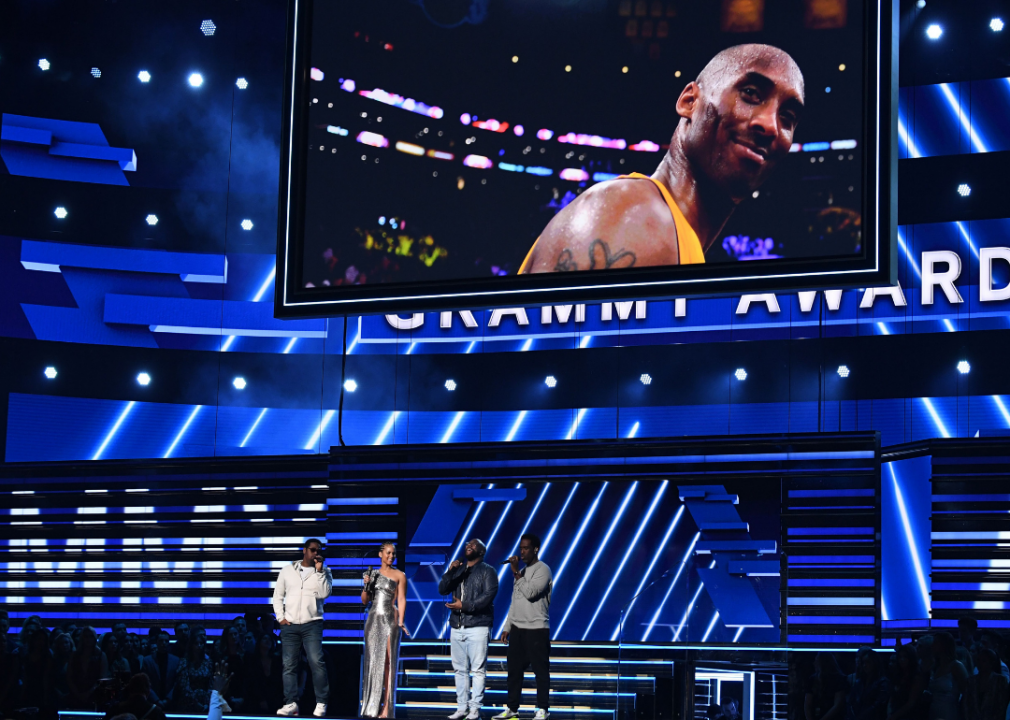
ROBYN BECK/AFP via Getty Images
2020: ‘Heartbroken in the house that Kobe built’
The 62nd Grammy Awards were held at the Staples Center in Los Angeles (also home to the Lakers) just hours after basketball star Kobe Bryant was pronounced dead from a helicopter crash. In his honor, his two retired Lakers jerseys were lit up throughout the awards ceremony. Alicia Keys addressed the audience, saying, “We are literally standing here heartbroken in the house that Kobe Bryant built.” Keys joined with Boyz II Men for a rendition of “It’s So Hard to Say Goodbye to Yesterday” in honor of the sports legend.

Kevin Winter/Getty Images for The Recording Academy
2021: Beyoncé sets new records
Beyoncé was nominated for nine awards at the 63rd Grammy Awards, more than any other artist that year. She won four of those awards, bringing her total to a record-setting 28—more than any other female performer at the time. “As an artist, I believe it’s my job, to reflect the times,” Beyoncé said in her acceptance speech for Best R&B Performance. “I wanted to uplift, encourage, and celebrate all of the beautiful Black queens and kings that continue to inspire me and inspire the whole world.”


